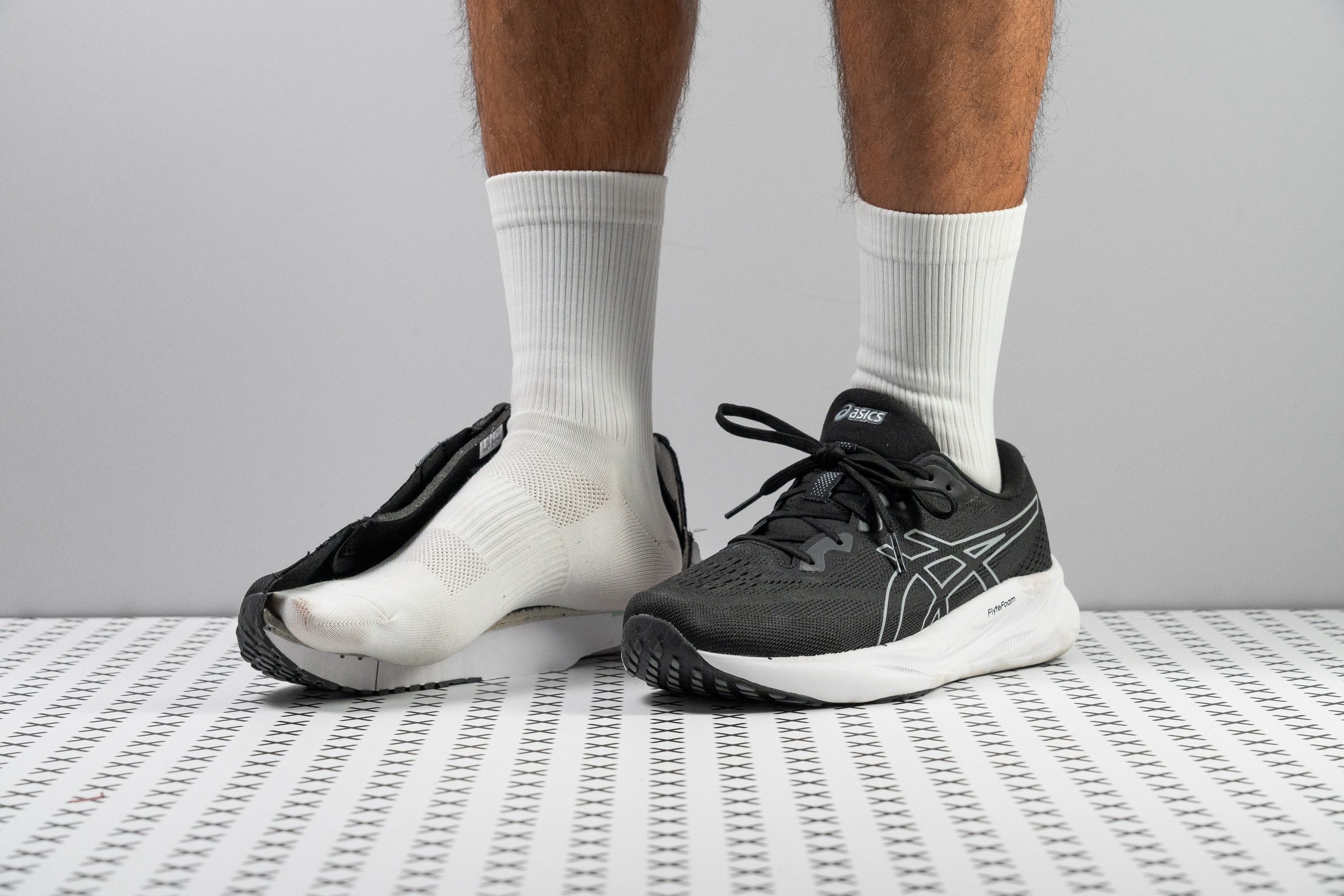Our verdict
Pros
- Exceptional value
- Durable design
- Excellent stability
- Superb weight reduction
- Good comfort
- Versatile for multiple activities
- Better than ever for long runs
- Improved for heel strikers
- Improved for heel strikers
Cons
- Breathability
- Subpar energy return even for a cheap shoe
- Rigid heel counter
Audience verdict
Comparison
The most similar running shoes compared
+ + Add a shoe | |||||
|---|---|---|---|---|---|
| Audience score | 83 Good! | 89 Great! | 87 Great! | 83 Good! | |
| Price | £100 | £150 | £140 | £100 | |
| Pace | Daily running | Daily running | Daily running | Daily running | |
| Shock absorption | Moderate | Moderate | High | Moderate | |
| Energy return | Low | High | High | Low | |
| Traction | High | Moderate | High | High | |
| Arch support | Neutral | Neutral | Neutral | Neutral | |
| Weight lab Weight brand | 8.4 oz / 237g 9.2 oz / 260g | 9.9 oz / 281g 10 oz / 284g | 8.2 oz / 232g 8.3 oz / 235g | 8.5 oz / 241g 8.5 oz / 240g | |
| Lightweight | ✓ | ✗ | ✓ | ✓ | |
| Drop lab Drop brand | 8.1 mm 8.0 mm | 8.9 mm 8.0 mm | 9.6 mm 5.0 mm | 10.2 mm 8.0 mm | |
| Strike pattern | HeelMid/forefoot | HeelMid/forefoot | HeelMid/forefoot | Heel | |
| Size | True to size | True to size | True to size | - | |
| Midsole softness | Balanced | Balanced | Balanced | Balanced | |
| Difference in midsole softness in cold | Small | Small | Big | Small | |
| Toebox durability | Decent | Decent | Decent | Decent | |
| Heel padding durability | Good | Bad | Bad | Decent | |
| Outsole durability | Good | Bad | Good | Good | |
| Breathability | Moderate | Moderate | Breathable | Warm | |
| Width / fit | Medium | Medium | Medium | Medium | |
| Toebox width | Medium | Medium | Narrow | Narrow | |
| Stiffness | Moderate | Moderate | Moderate | Stiff | |
| Torsional rigidity | Stiff | Stiff | Stiff | Stiff | |
| Heel counter stiffness | Stiff | Stiff | Stiff | Stiff | |
| Rocker | ✗ | ✓ | ✓ | ✓ | |
| Heel lab Heel brand | 35.3 mm 35.0 mm | 36.1 mm 37.0 mm | 36.0 mm 37.0 mm | 36.5 mm 36.0 mm | |
| Forefoot lab Forefoot brand | 27.2 mm 27.0 mm | 27.2 mm 29.0 mm | 26.4 mm 32.0 mm | 26.3 mm 28.0 mm | |
| Widths available | Normal | Normal | NormalWide | Normal | |
| Orthotic friendly | ✓ | ✓ | ✓ | ✓ | |
| Season | All seasons | All seasons | SummerAll seasons | All seasons | |
| Removable insole | ✓ | ✓ | ✓ | ✓ | |
| Ranking | #525 Bottom 23% | #91 Top 24% | #157 Top 41% | #264 Bottom 31% | |
| Popularity | #371 Bottom 45% | #233 Bottom 39% | #15 Top 4% | #155 Top 41% |
Who should buy
We've put the ASICS Gel Pulse 15 through its paces in our lab and confidently recommend it for:
- Those who previously found the Gel Pulse 13 or 14 too heavy or unresponsive—this version is lighter and bouncier, making every step feel more dynamic.
- Beginners in search of an affordable, reliable shoe that's versatile enough for various running scenarios and daily activities.
- Heel-striking runners needing mild stability without the hefty price tag.
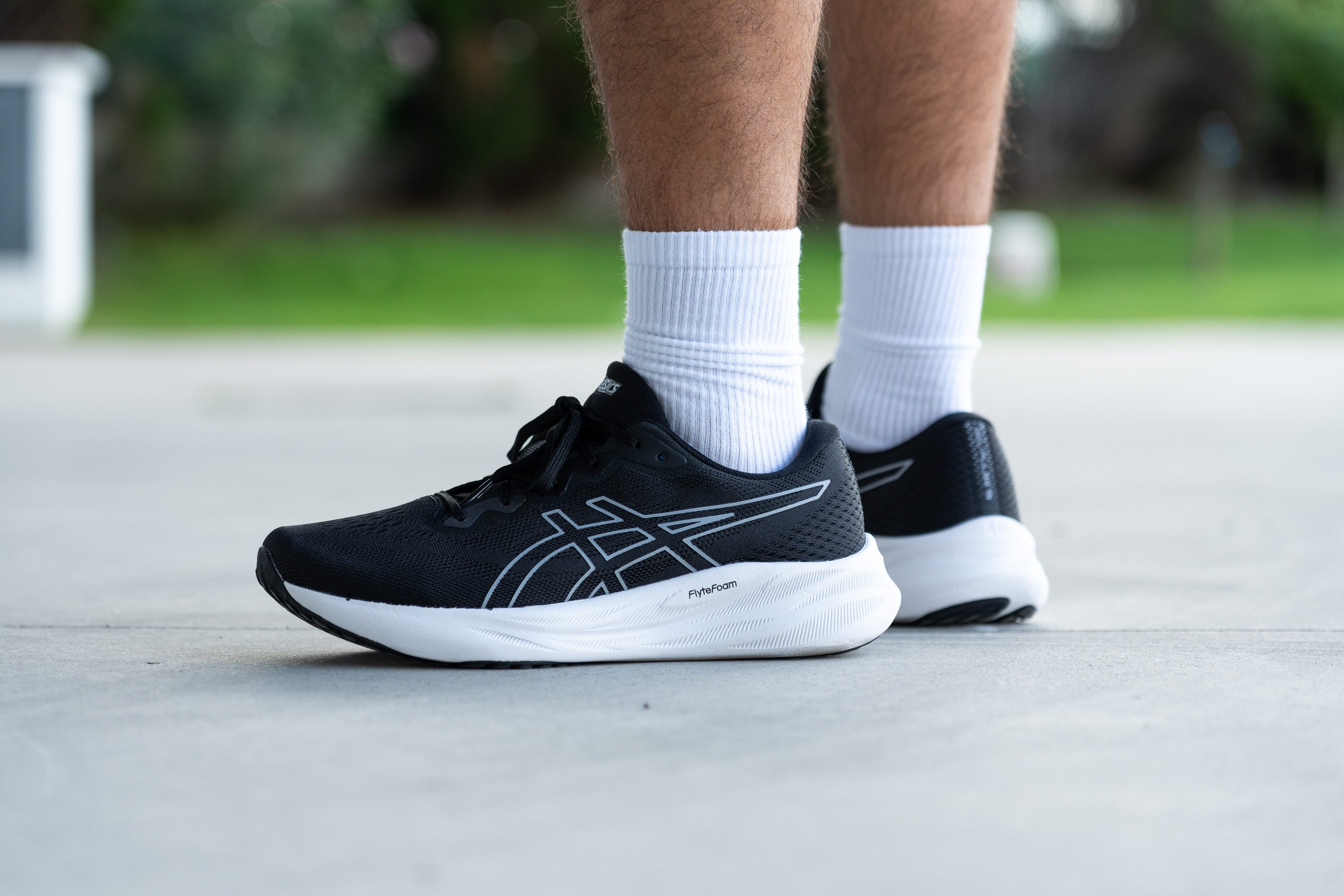
Who should NOT buy
While the ASICS Gel Pulse 15 boasts an upgraded midsole, we found that its energy return still falls short for those who crave a bouncy ride. If that's you, we suggest spending a bit more for the ASICS Novablast 4, which offers a superior FF Blast+ foam that enhances the responsiveness.
Additionally, we think the Gel Pulse 15 isn't the best option for runners who tend to wear out their outsole quickly.
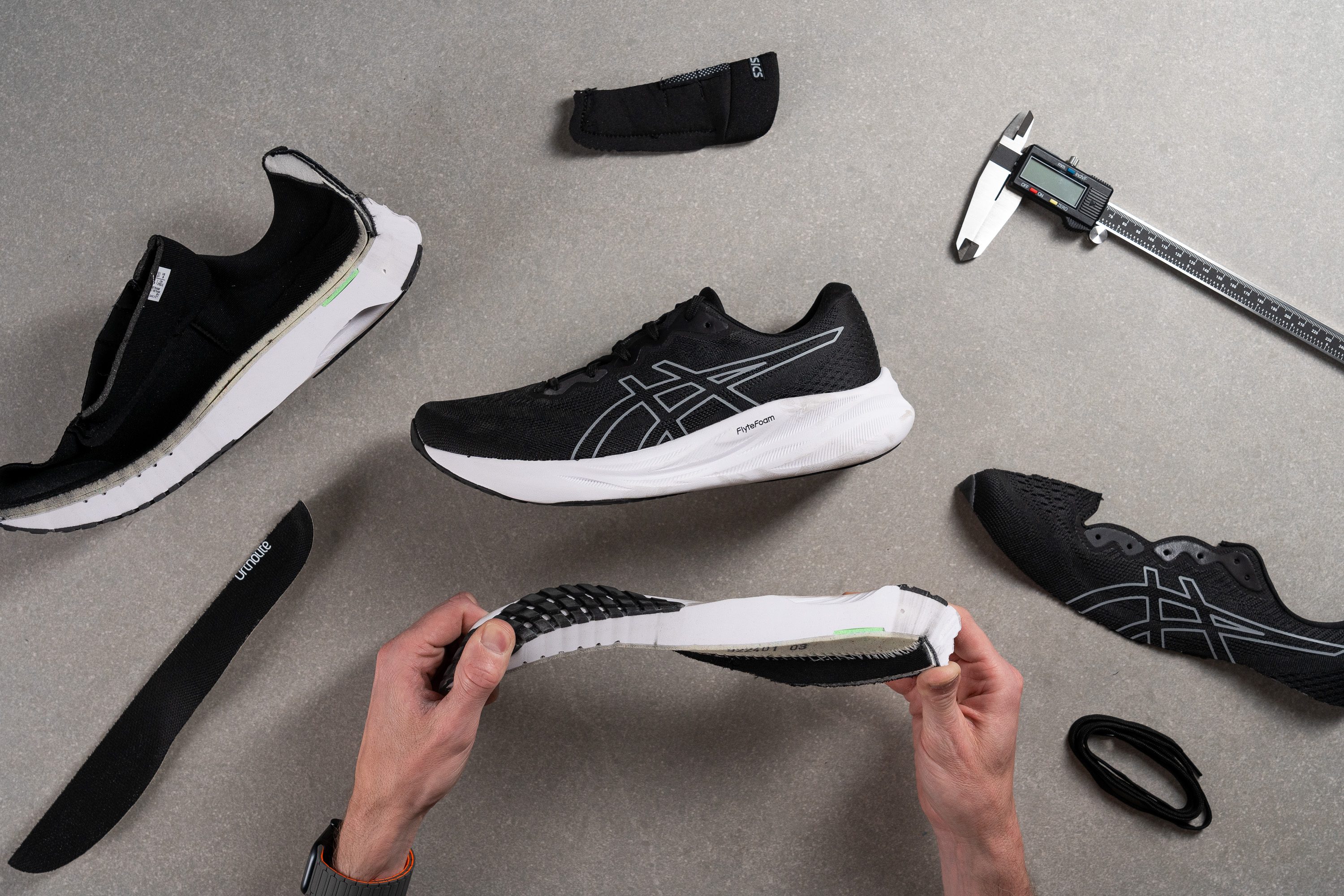
It lacks sufficient coverage, which could lead to premature wear. Instead, we recommend the Nike Winflo 11 or the ASICS Gel Excite 10—both options feature more robust rubber coverage that extends outsole durability, especially in the midfoot area, at a similar price point.
Cushioning
Shock absorption
The Gel Pulse 15 offers average shock absorption with 121 SA in the heel, and the forefoot mirrors that performance at 106 SA. Just what we expected!
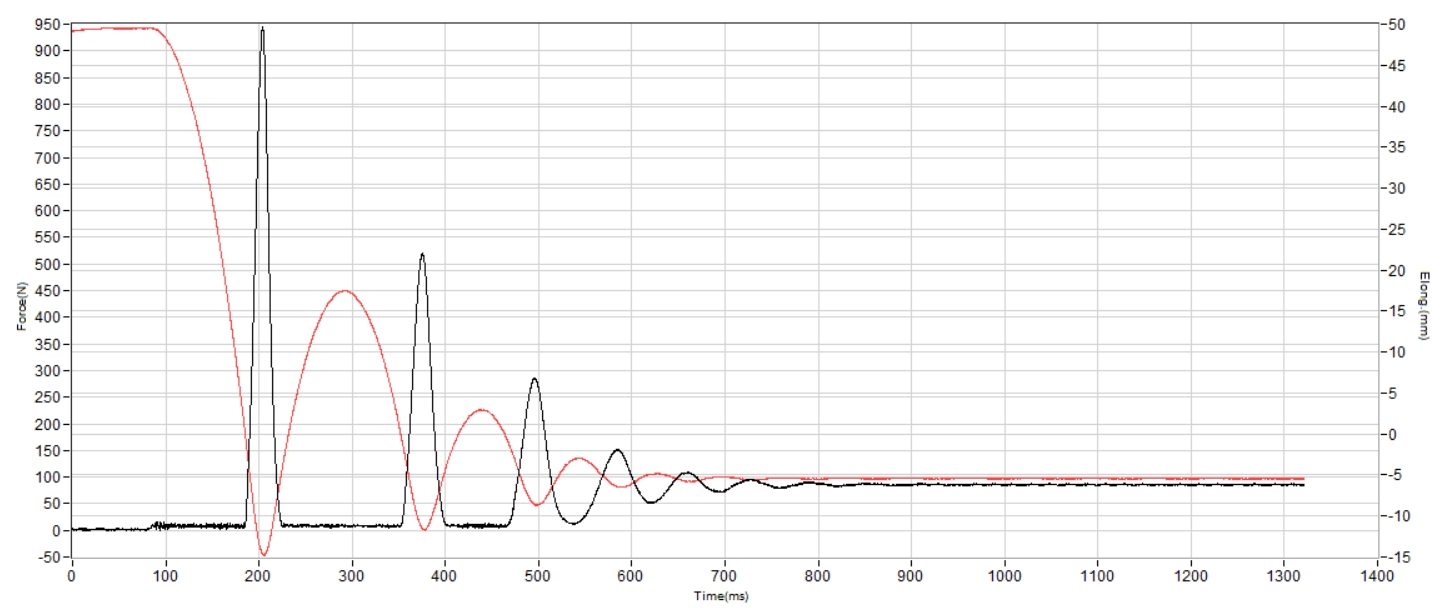
| Gel Pulse 15 | 121 SA |
| Average | 130 SA |
Energy return
We’ve noticed a consistent trend of low energy return across ASICS daily trainers using FlyteFoam midsoles (including FF Blast+) and the Pulse 15 is no exception. It scored just 44.2% in the heel, leaving plenty of room for improvement.
| Gel Pulse 15 | 44.2% |
| Average | 58.6% |
Heel stack
The weight reduction became even more impressive when we discovered that the stack height of the v15 had increased by 3.3 mm in the heel, reaching up to 35.3 mm.
This enhancement makes the Gel Pulse 15 more capable of supporting heavier runners over long distances.
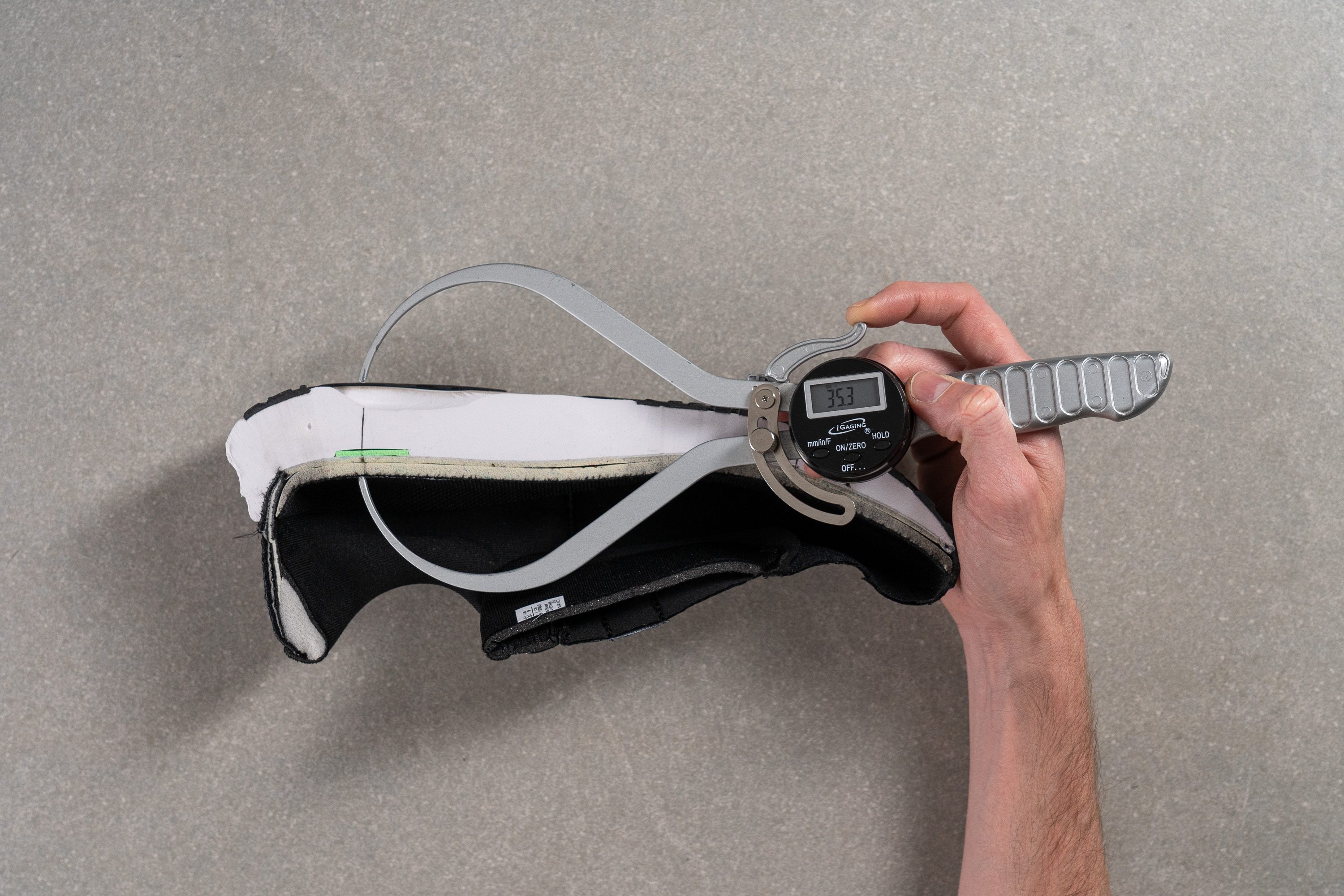
| Gel Pulse 15 | 35.3 mm |
| Average | 34.8 mm |
Forefoot stack
We discovered that the forefoot of the Gel Pulse 15 underwent a significant upgrade, transitioning from 22.3 mm in the v14 to a nearly max-cushioned territory of 27.2 mm.
This is a beneficial change for nearly all runners, as the previous version was simply too thin and frequently bottomed out. Now, you enjoy more foam with less weight—a perfect combo.
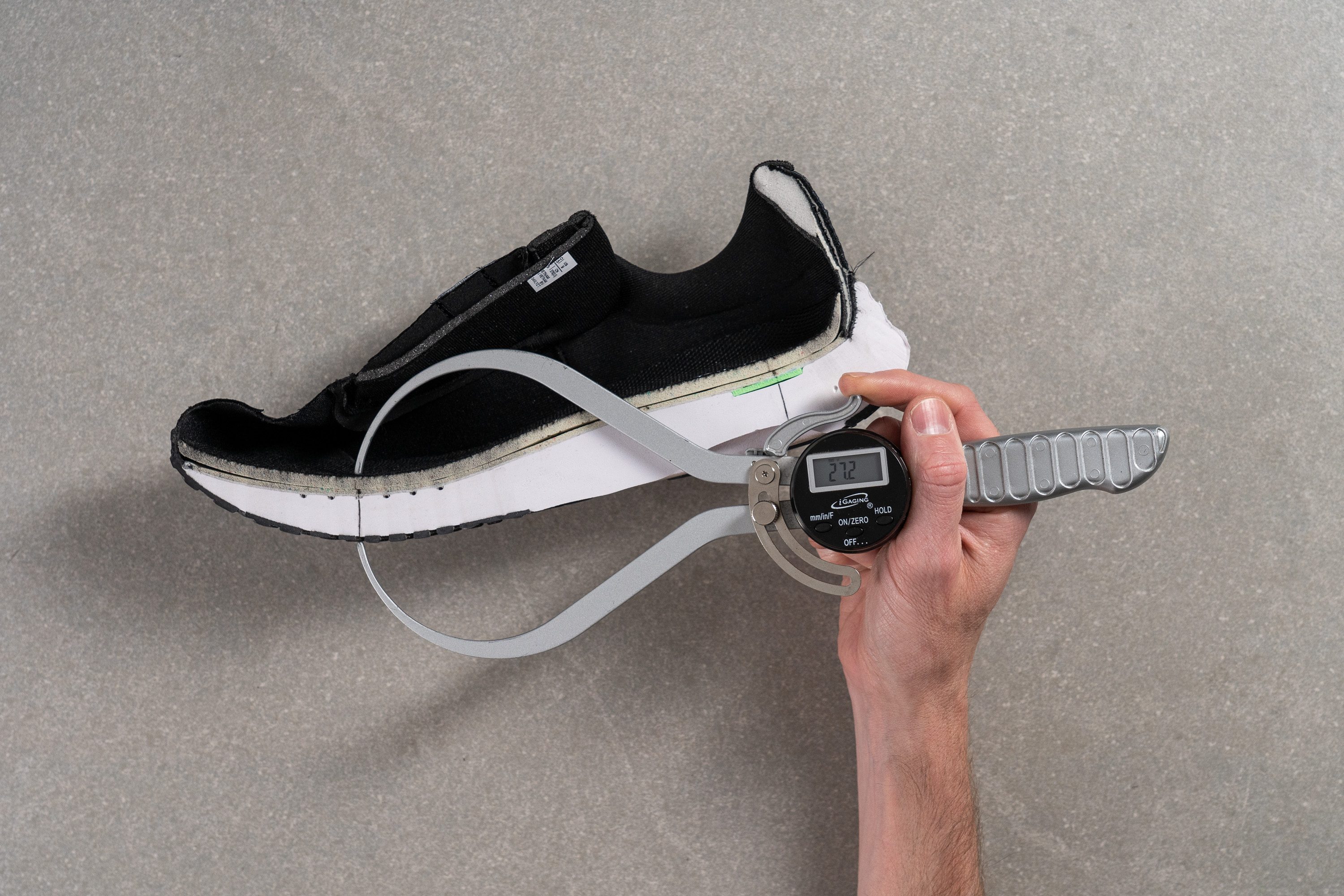
| Gel Pulse 15 | 27.2 mm |
| Average | 26.2 mm |
Drop
ASICS claims that this shoe has an 8-mm drop, and we are pleased to confirm that. In fact, our measurements showed only a minimal discrepancy, much lower than usual, for an actual 8.1-mm heel-to-toe drop. This is particularly impressive for a budget-friendly shoe!
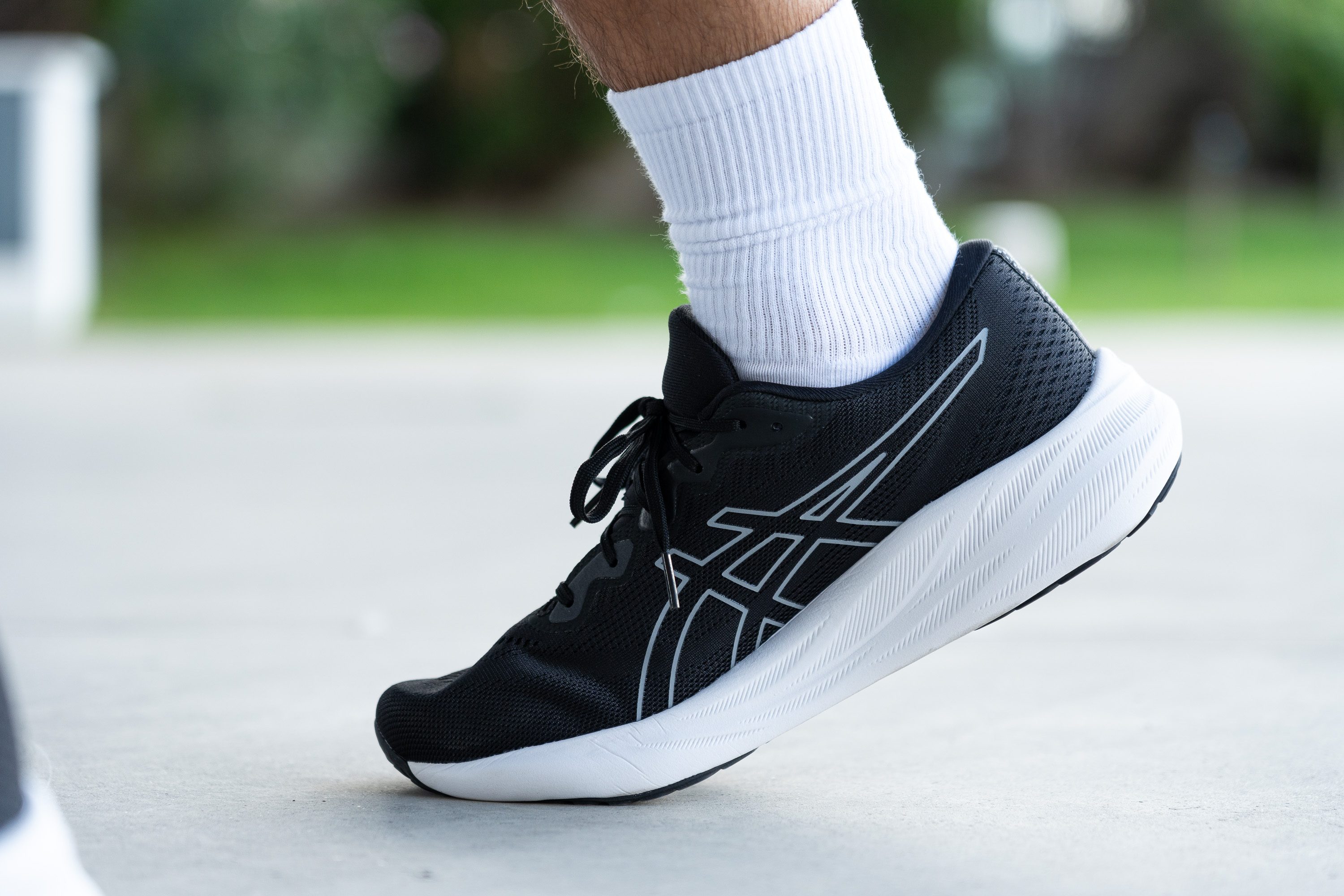
| Gel Pulse 15 | 8.1 mm |
| Average | 8.6 mm |
Midsole softness
We previously highlighted how ASICS managed to reduce the weight of its predecessor by two full ounces, with the midsole playing a key role in this transformation.
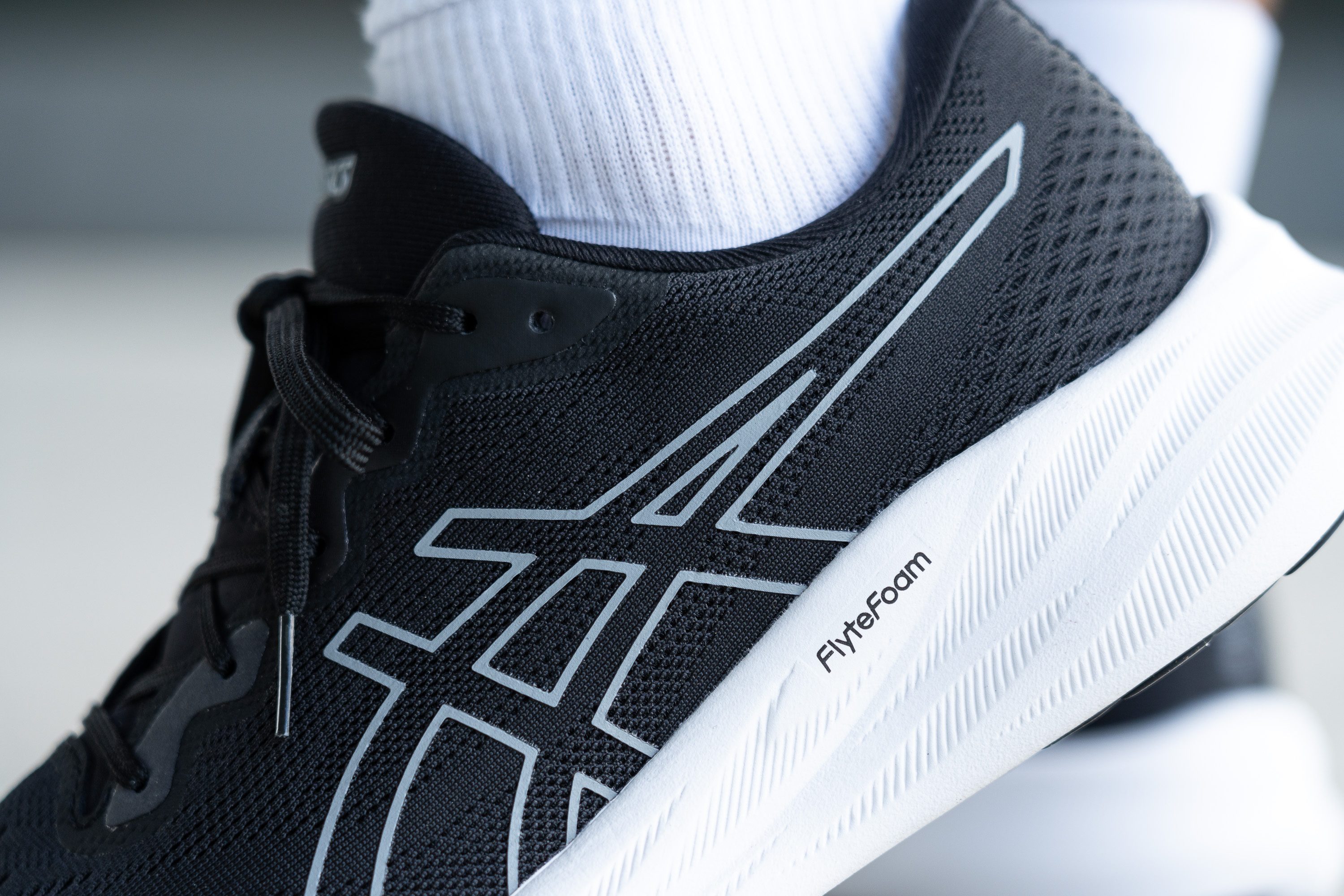
ASICS transitioned from the dull and heavier AMPLIFOAM to the lighter and softer FlyteFoam, a better EVA compound that ranks as a mid-tier foam in ASICS' lineup and serves the Gel Pulse 15 well. We pressed our durometer against it and recorded a balanced softness score of 21.0 HA.
While this shoe sits in the affordable range of running shoes, where spectacular bounciness or energy return shouldn't be expected, it's notably lighter than before and effectively fulfils its purpose. In our view, it’s a remarkable and much needed upgrade!
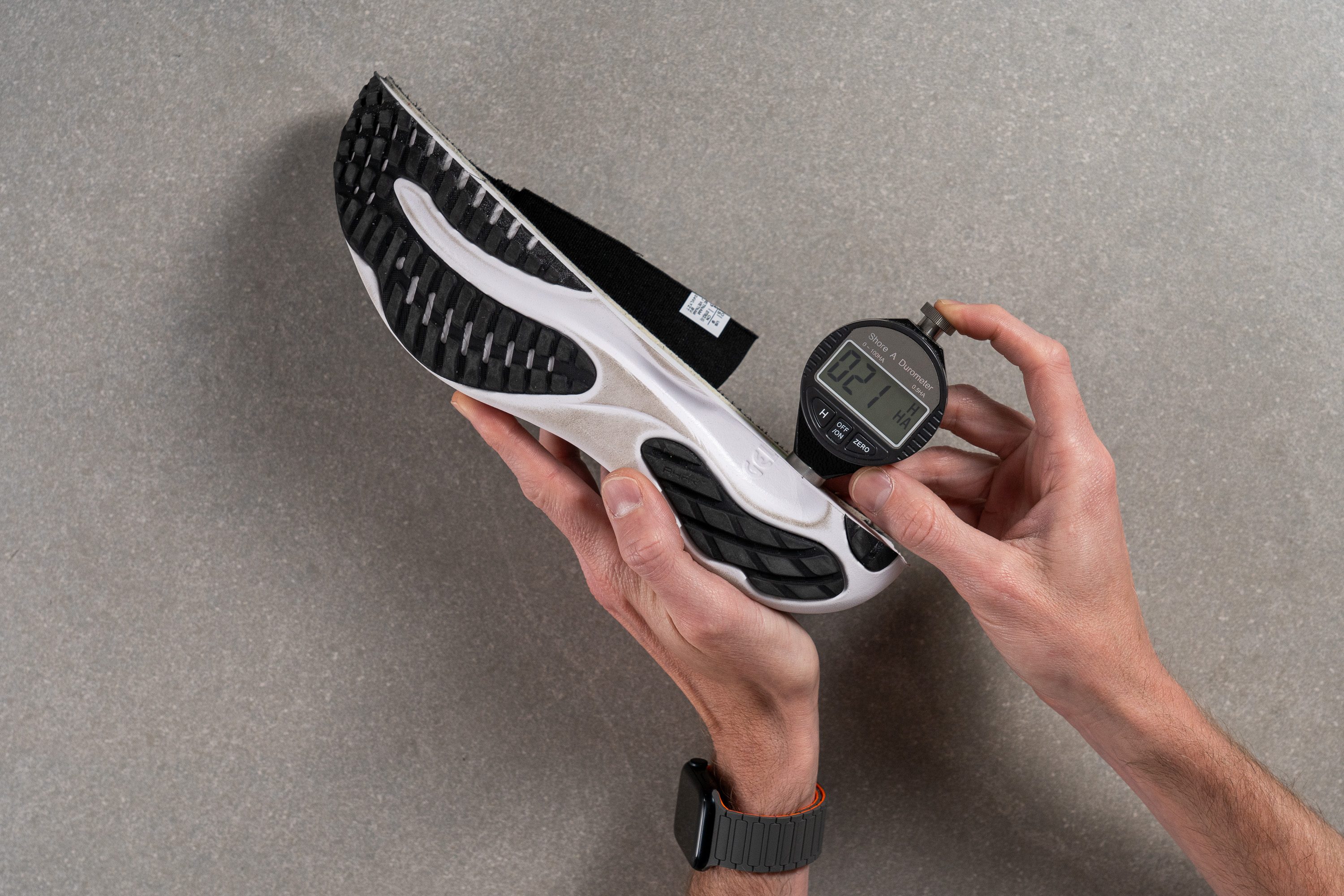
| Gel Pulse 15 | 21.0 HA |
| Average | 20.4 HA |
Rocker
During our first run in the Gel Pulse 15, we quickly noticed that ASICS had slightly adjusted the geometry—elevating the forefoot rocker and curving the heel earlier to enhance transitions for rearfoot strikers. Nice move!
GEL
ASICS has always highlighted the GEL technology, but in recent years, it began to seem outdated due to its weight and lack of energy return. And after much delay, they finally removed the large GEL chunk from the heel of this series.
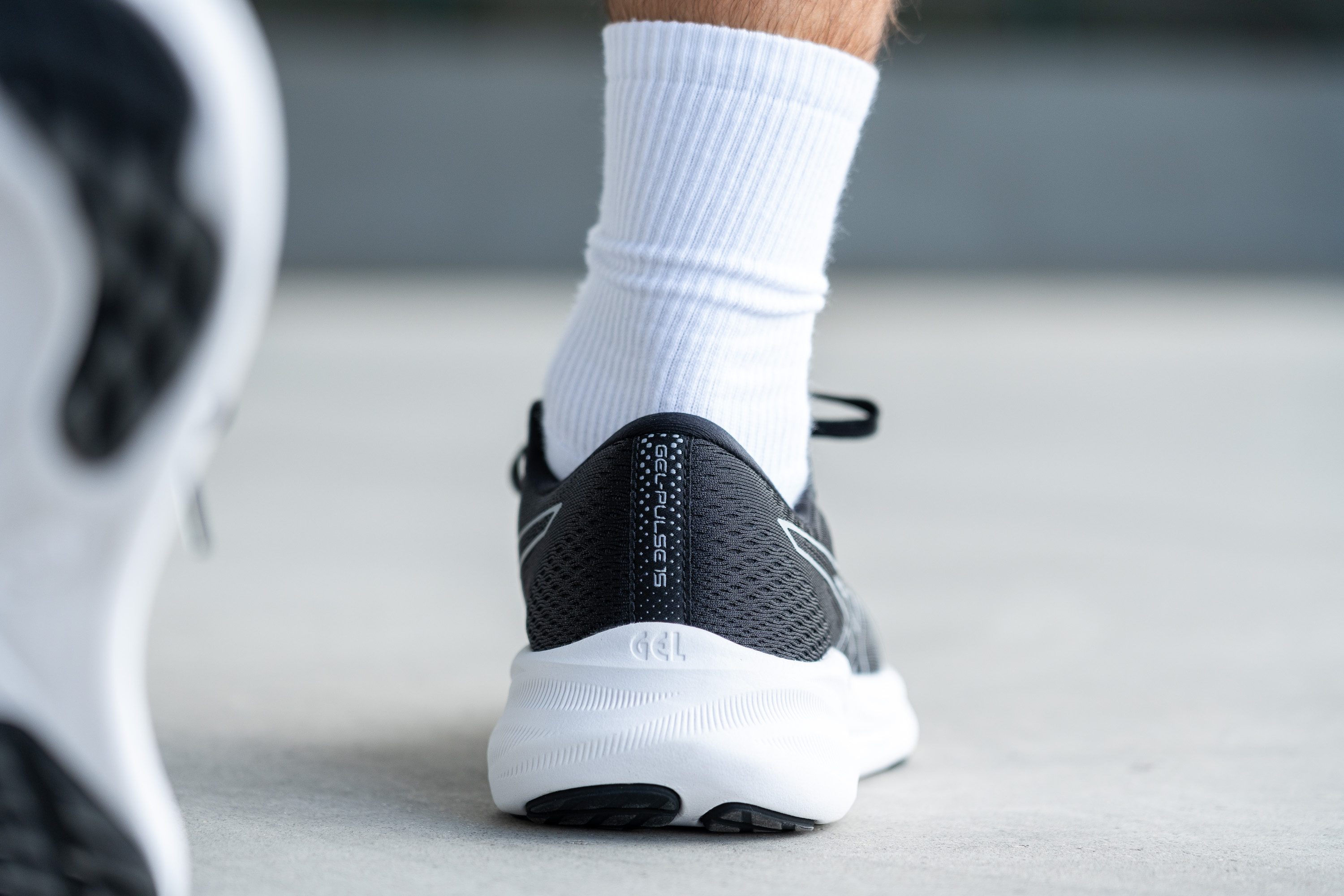
Now, there's a very small GEL piece (less advanced than the PureGEL in the pricier Nimbus 26) under the heel's insole, supposedly providing a touch of comfort for softer landings. Frankly, it feels to us like a gimmick to keep GEL alive—it's hardly noticeable while running.
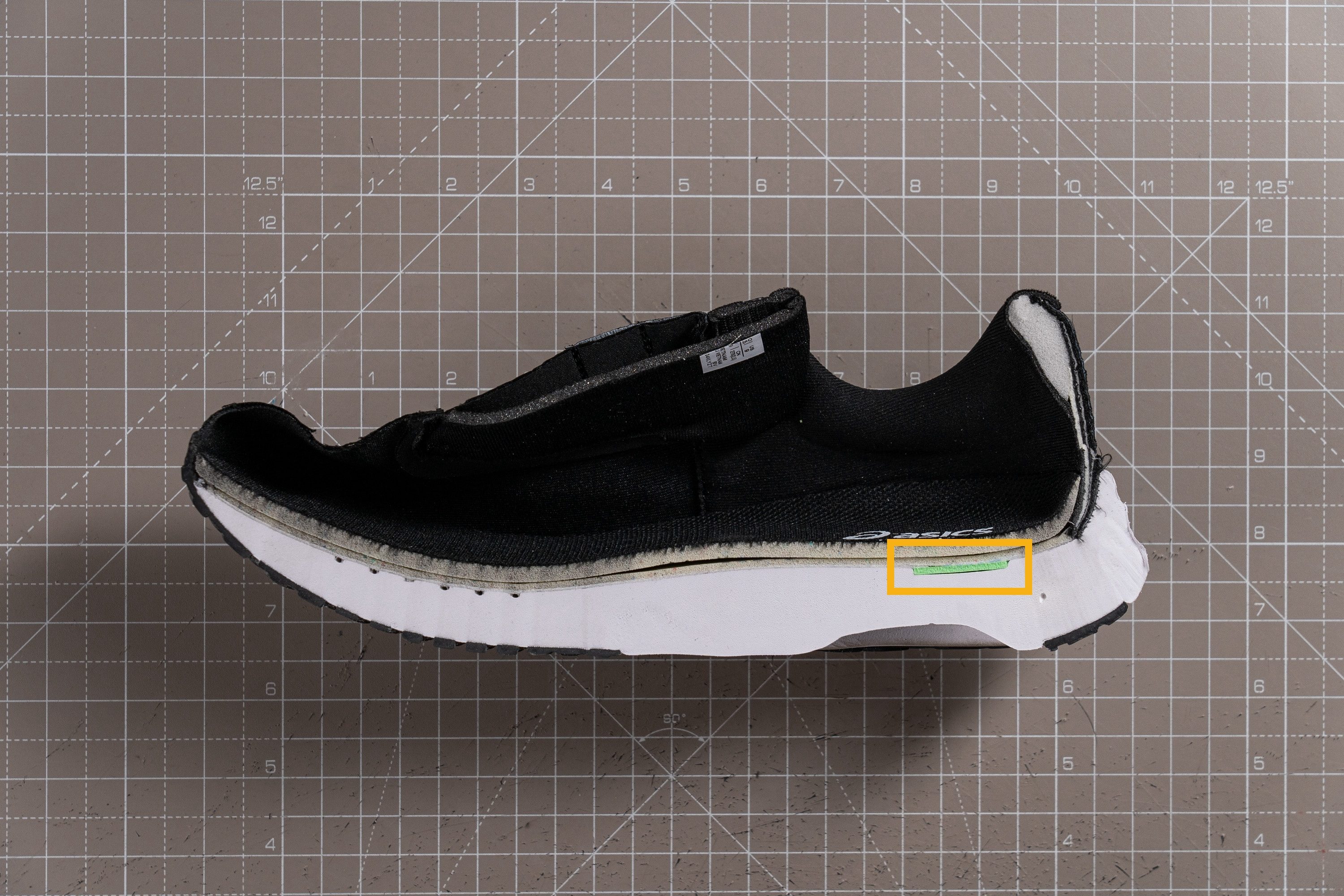
Size and fit
Size
ASICS Gel Pulse 15 fits true to size (66 votes).
Internal length
| Gel Pulse 15 | 273.3 mm |
| Average | 269.4 mm |
Width / Fit
We believe that ASICS aims to make this shoe as average as possible to suit nearly everyone, and the fit mirrors this intention in both feel and size.
Measuring 96.2 mm at the widest part of our 1:1 gel mould of the shoe's interiors, it aligns well with most other shoes in terms of neither being too narrow nor too wide.
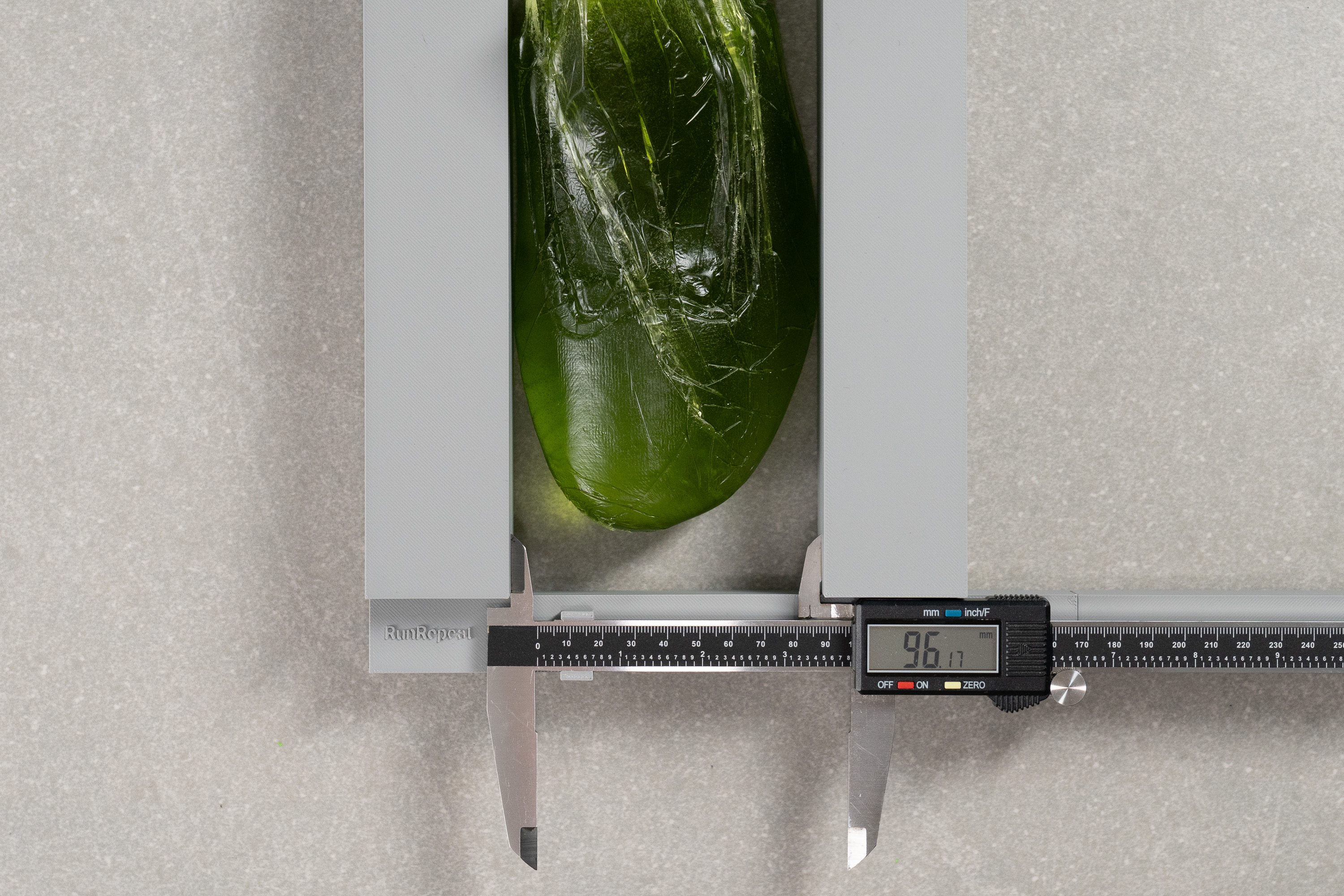
| Gel Pulse 15 | 96.2 mm |
| Average | 95.1 mm |
Toebox width
We observed the same with the big toe area, measuring 73.1 mm—feeling, once again, just average!
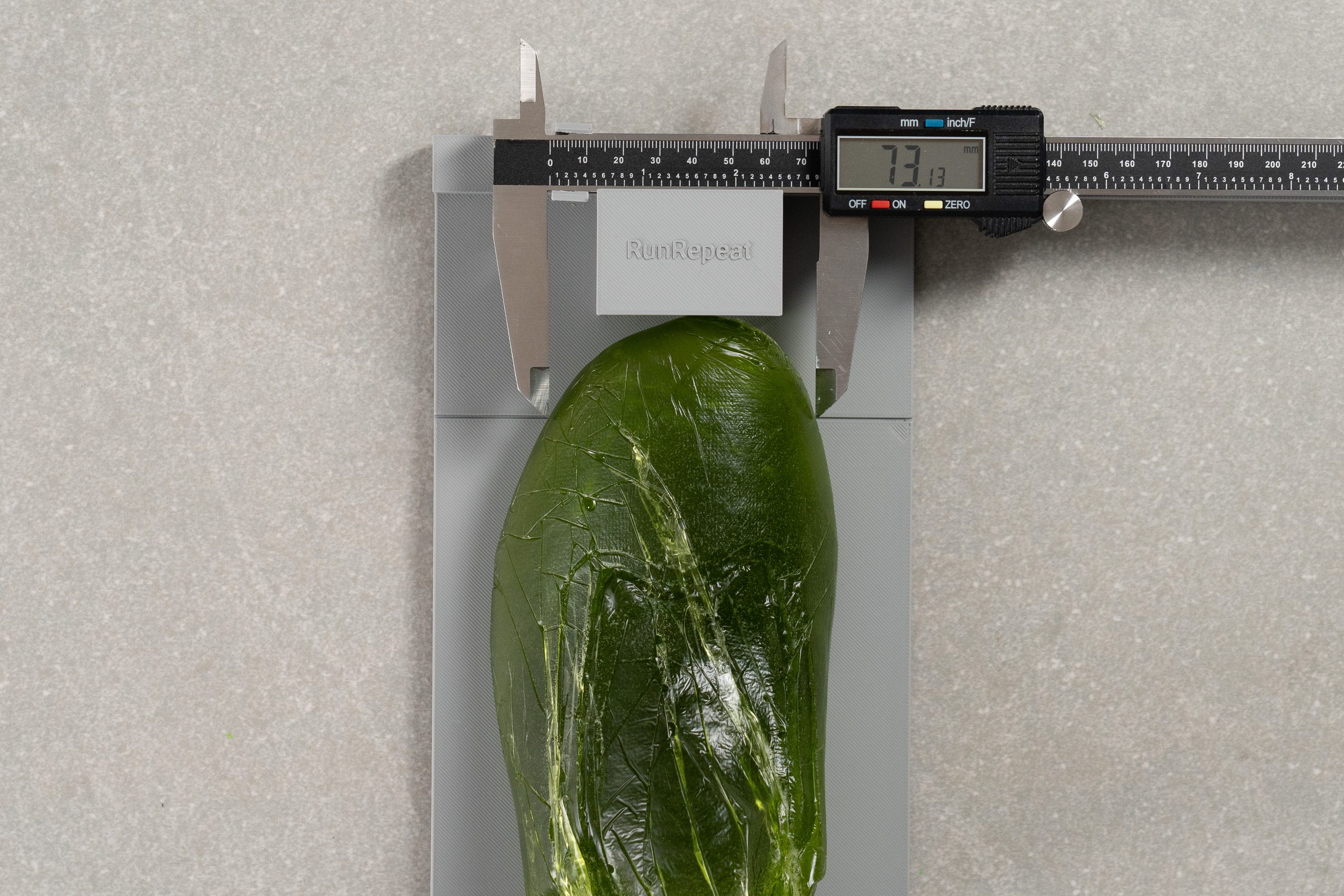
| Gel Pulse 15 | 73.1 mm |
| Average | 73.3 mm |
Toebox height
We also discovered that the height of the toebox is quite satisfactory at 27.8 mm, as the toecap is notably rounded.
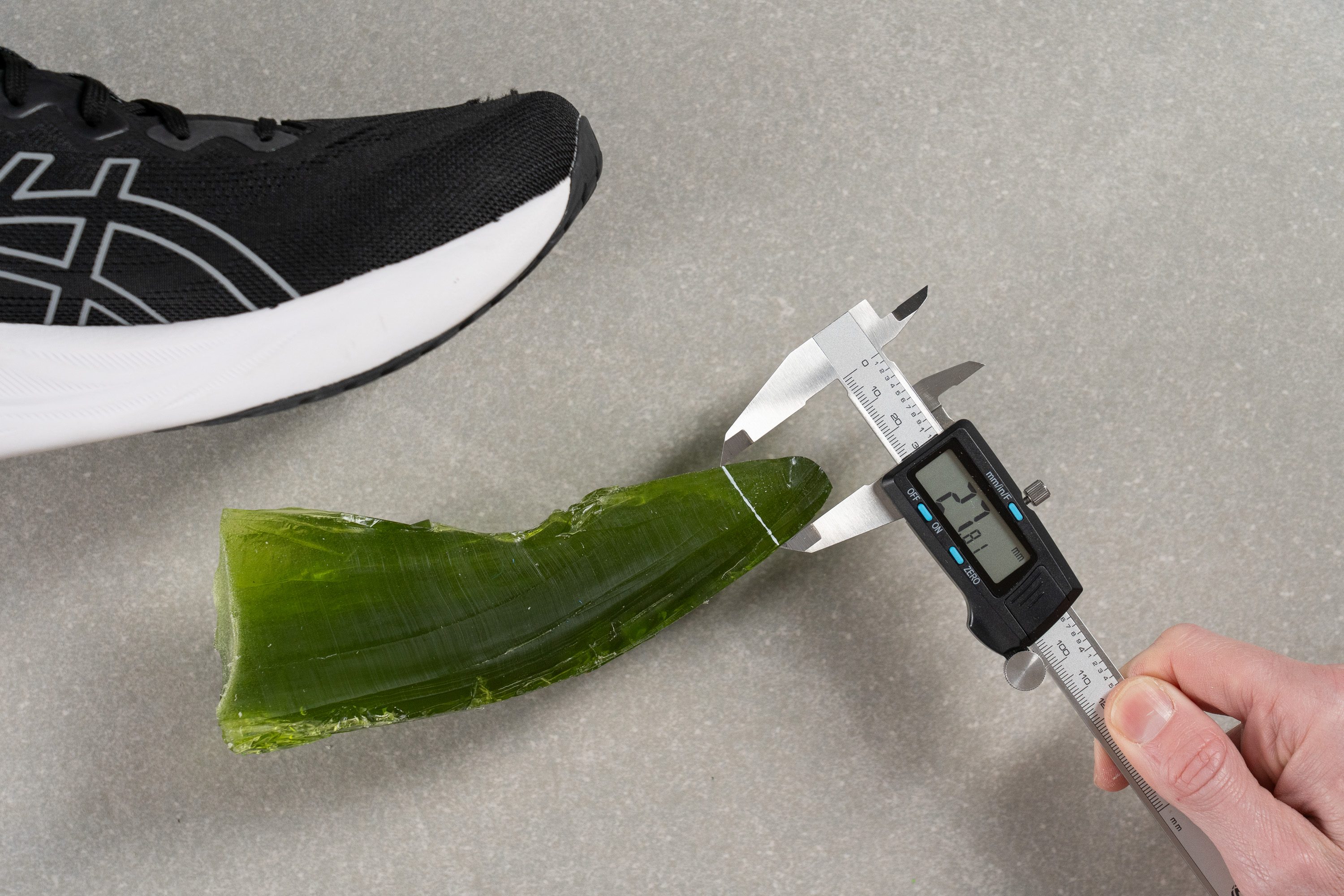
| Gel Pulse 15 | 27.8 mm |
| Average | 27.0 mm |
Traction / Grip
Traction test
In our wet-condition grip test (dry results are rarely a challenge anymore in the running shoe world) we found that the Gel Pulse 15 delivered an unremarkable performance with a score of 0.46.
That lands it right around the average, delivering solid grip in dry and wet surfaces.
| Gel Pulse 15 | 0.46 |
| Average | 0.49 |
Outsole design
We discovered that ASICS used the same AHARPLUS rubber as in the Gel Pulse 14. Rubber coverage is not the best we've ever seen in a daily trainer, yet the main wear-prone areas are adequately protected.
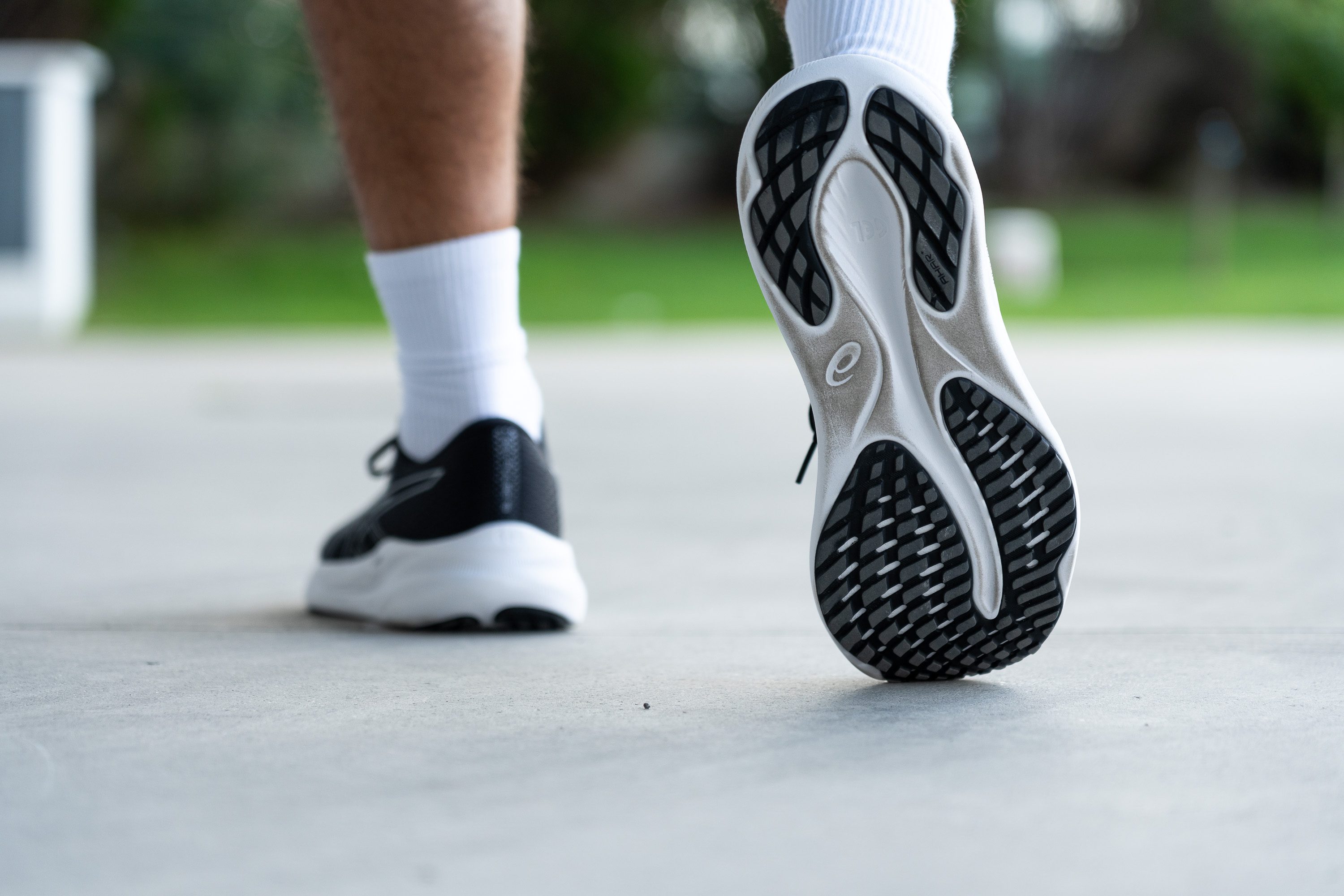
Flexibility / Stiffness
This shoe is designed to be versatile, able to tackle a range of activities beyond just running. And during our testing in the lab, we only had to make 14.8N to flex it to a 30-degree angle. This flexibility met our expectations perfectly, demonstrating its comfort for varied daily use.
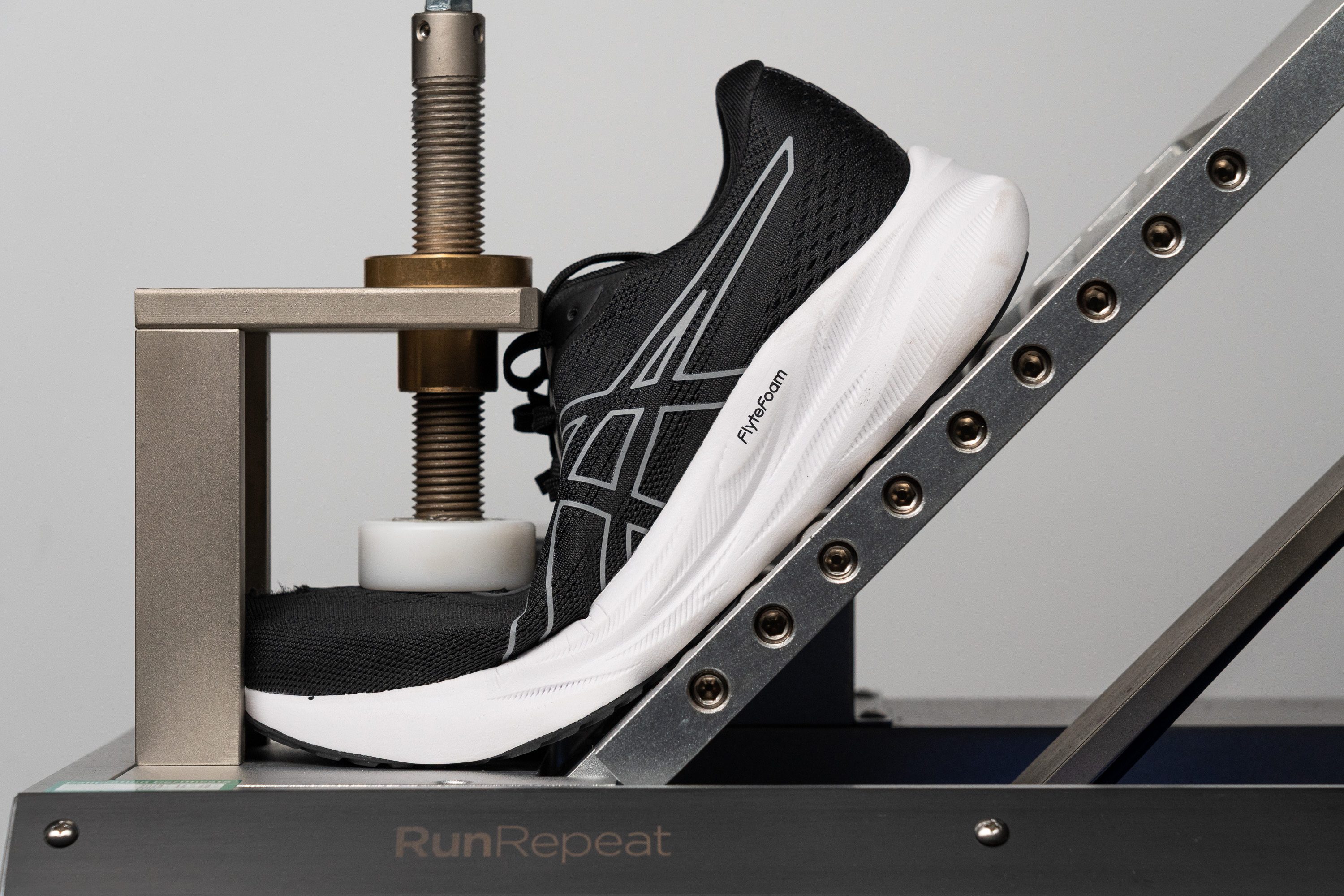
| Gel Pulse 15 | 14.8N |
| Average | 15.3N |
Stiffness in cold (%)
Similar to our findings on the midsole's softness, FlyteFoam also showcased a solid performance in longitudinal stiffness, displaying a better-than-average 25% variation.
| Gel Pulse 15 | 25% |
| Average | 33% |
Weight
The main drawback of the Gel Pulse 14 was its hefty weight—it tipped our scales at a substantial 10.4 oz (296g), which felt overly heavy for its size. However, ASICS took this feedback to heart, as we found that they impressively reduced the weight by two full ounces to 8.4 oz (237g), in one of the most remarkable weight reductions we've seen in the lab.
How did they achieve such an outstanding transformation? It primarily boils down to the midsole materials—they removed the large chunk of heavy gel and replaced it with a smaller piece. Additionally, they switched from AMPLIFOAM to the lighter FlyteFoam.
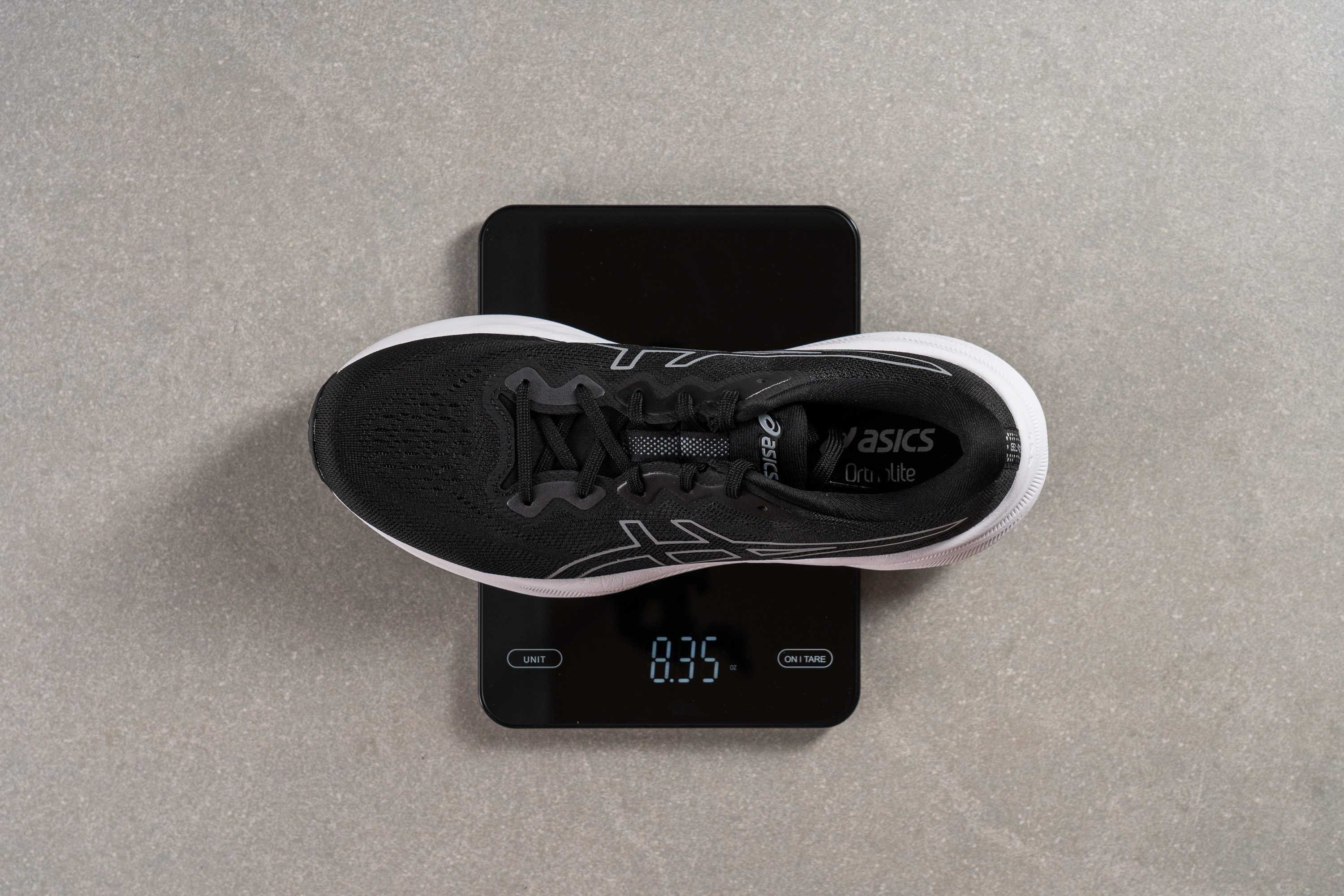
| Gel Pulse 15 | 8.4 oz (237g) |
| Average | 9.3 oz (264g) |
Breathability
ASICS used an engineered mesh that looks appealing at first glance, but we found its breathability to be slightly less than ideal. However, it's not entirely disappointing, as a 3/5 rating still guarantees solid performance throughout the year, except perhaps on the hottest summer days.
One of the main reasons the Gel Pulse 15 isn't the best choice for extremely hot weather is the thickness of the engineered mesh. While it does enhance comfort, it doesn't let much light through, indicating less-than-optimal ventilation.
Curious for more details, we examined the shoe under a microscope and discovered why.
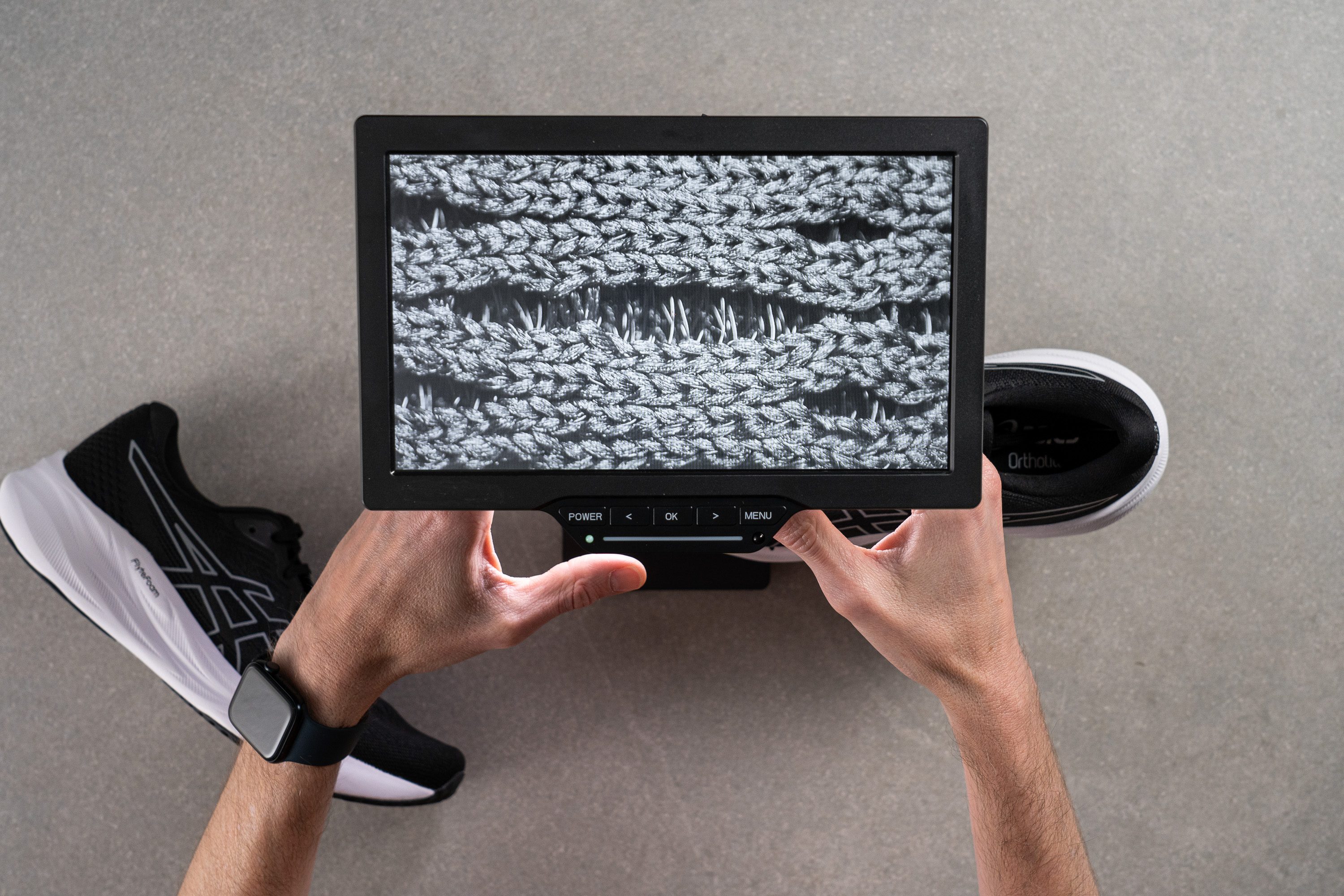
The mesh is denser than it appears, and the ventilation holes are slightly obstructed by a thin fabric layer, which restricts airflow.
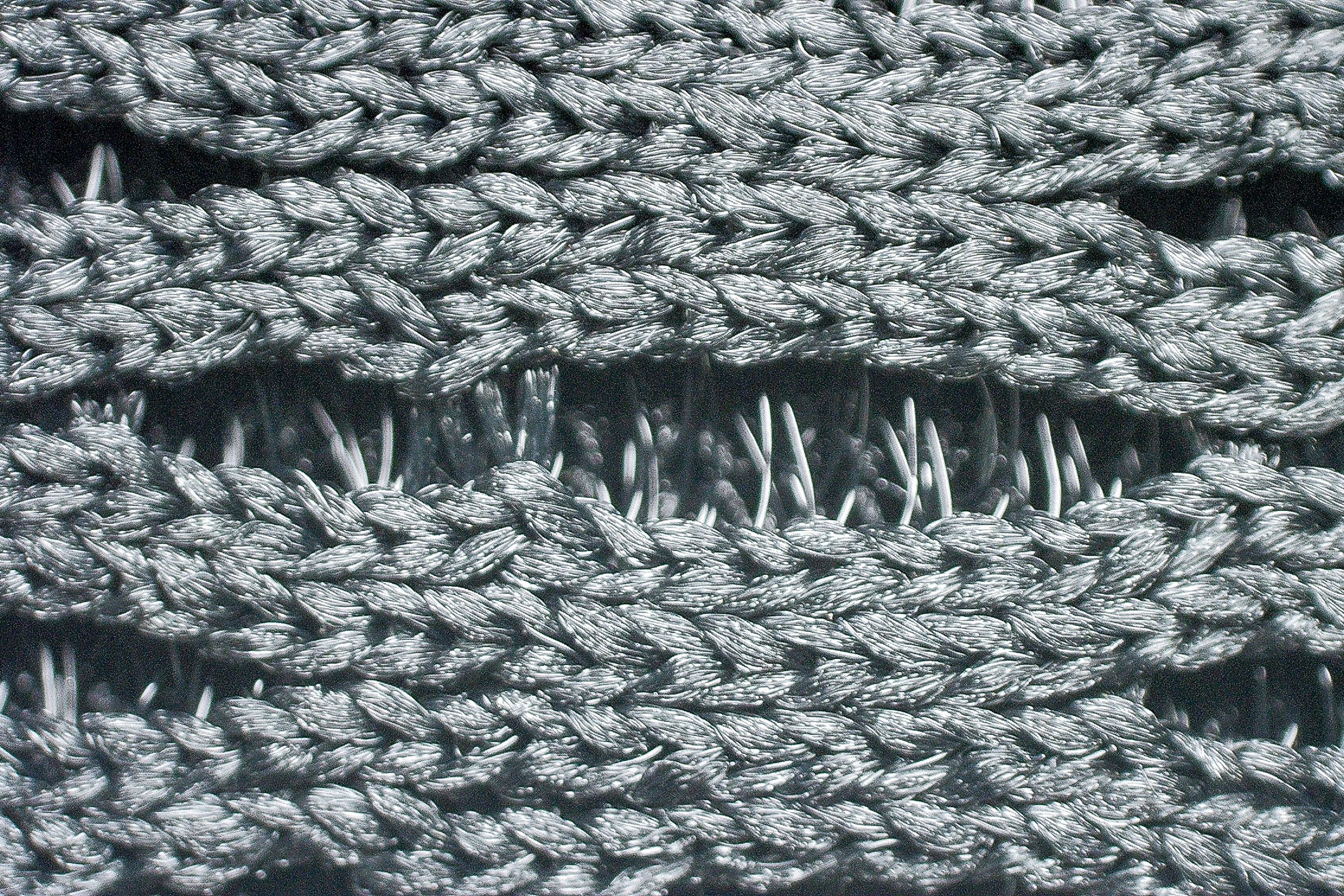
Nonetheless, there's a positive aspect to this design—the comfort level is excellent, and it significantly enhances stability.
We found it to be really good, with ample padding and no rough spots in the toebox. Overall, it's a very nice upper for a £100 shoe.
| Gel Pulse 15 | 3 |
| Average | 3.7 |
Stability
This shoe is designed to be versatile, able to tackle a range of activities beyond just running. And during our testing in the lab, we only had to make 21.5N to flex it to a 90-degree angle. This flexibility met our expectations perfectly, demonstrating its comfort for varied daily use.
Lateral stability test
Despite being categorised as a neutral daily trainer, the Gel Pulse 15 stands out for its stability, making it an excellent choice for those seeking moderate support in an affordable daily trainer without the intrusive features typical of most stability running shoes.
Torsional rigidity
While the stability of the Gel Pulse 15 is superb, it does come with certain trade-offs, like decreased flexibility.
One notable compromise is the high torsional rigidity that we noticed when attempting to twist the shoe by hand. In our manual evaluation, we assigned it a score of 4/5, which aligns with shoes typically designed for overpronators.
| Gel Pulse 15 | 4 |
| Average | 3.5 |
Heel counter stiffness
This shoe might pose a concern for runners with very sensitive Achilles tendons or those with Haglund's deformity, as the heel counter is really stiff (5/5).
While not inherently negative, it may not suit everyone. Conversely, heel strikers who appreciate a guided ride might find the Gel Pulse 15 to be an ideal match.
| Gel Pulse 15 | 5 |
| Average | 2.9 |
Midsole width - forefoot
Now it's time to measure the dimensions of the shoe, and here we note another significant update.
The forefoot has expanded to 118.8 mm at its widest point, a substantial change that enhances stability for both midfoot and forefoot strikers.
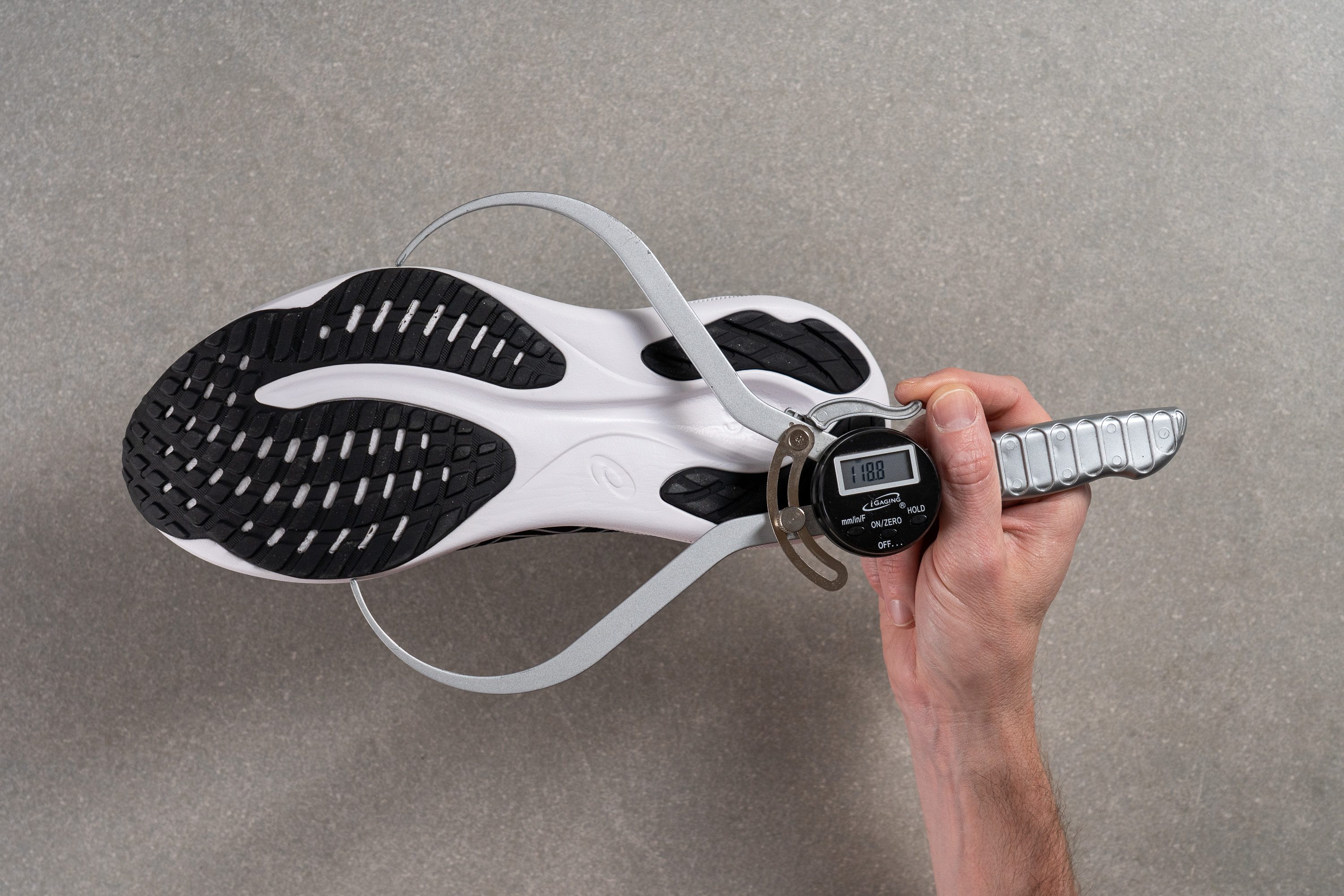
| Gel Pulse 15 | 118.8 mm |
| Average | 114.4 mm |
Midsole width - heel
Yet it's in the heel where we observed the most significant change, expanding from a lower-than-average width to a substantial 97.9 mm at its widest part. This size is well above the average and similar to that of stability shoes, possibly even excessive for neutral runners.
This enormous size, combined with the stiff heel counter and high torsional rigidity, effectively categorises this as a de facto stability shoe for us. However, ASICS has chosen not to fully classify it as such, likely to avoid overlapping with the GT 1000 13 and GT 2000 12 models, and we understand the marketing strategy behind this decision.
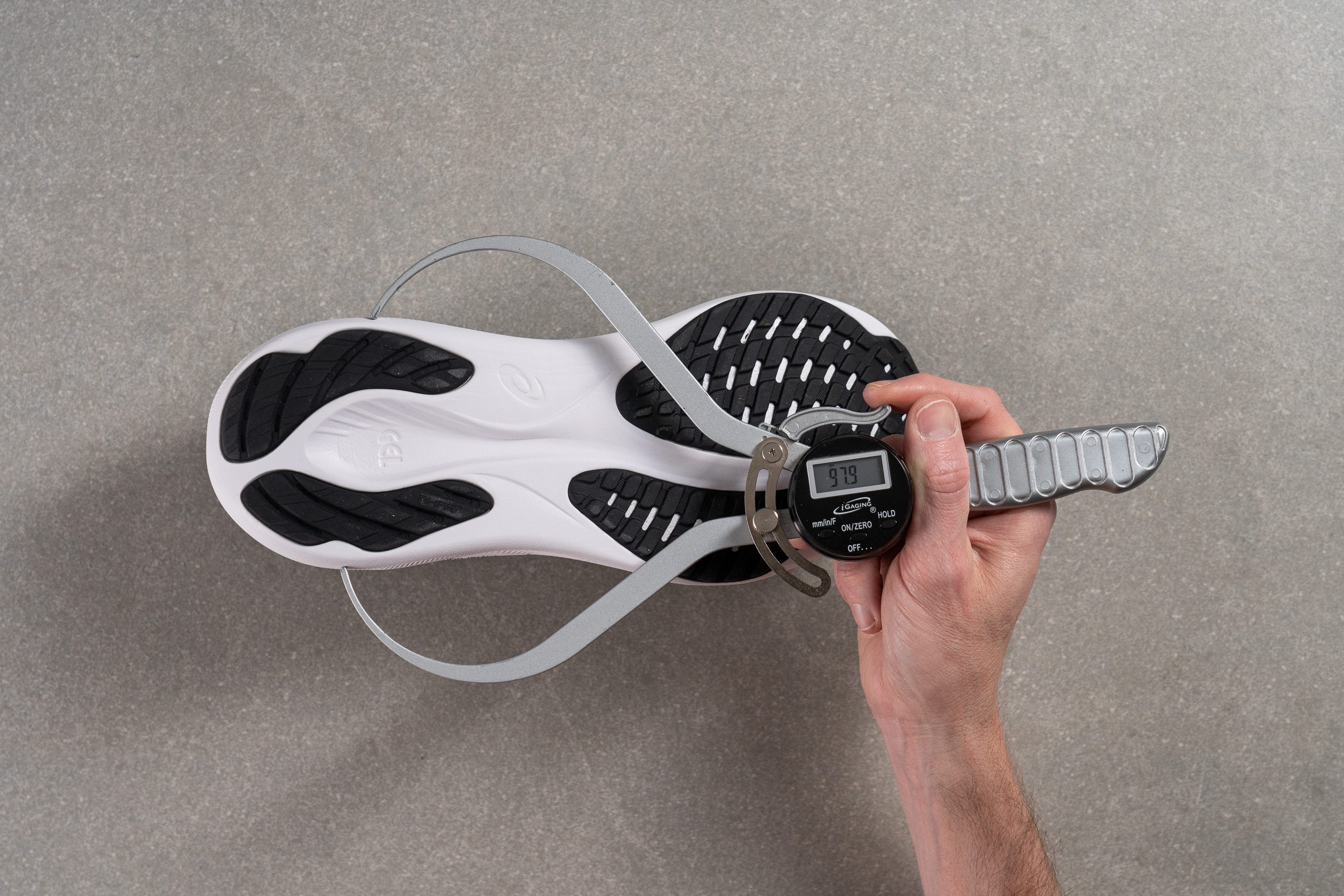
| Gel Pulse 15 | 97.9 mm |
| Average | 90.6 mm |
Durability
Toebox durability
Another advantage of a thicker, denser upper is that, theoretically, it should enhance durability in the toebox.
To verify this, we tested with our Dremel and confirmed it to be true. Scoring a 3/5 on our durability scale, we're quite pleased with this result and feel it represents a solid performance.
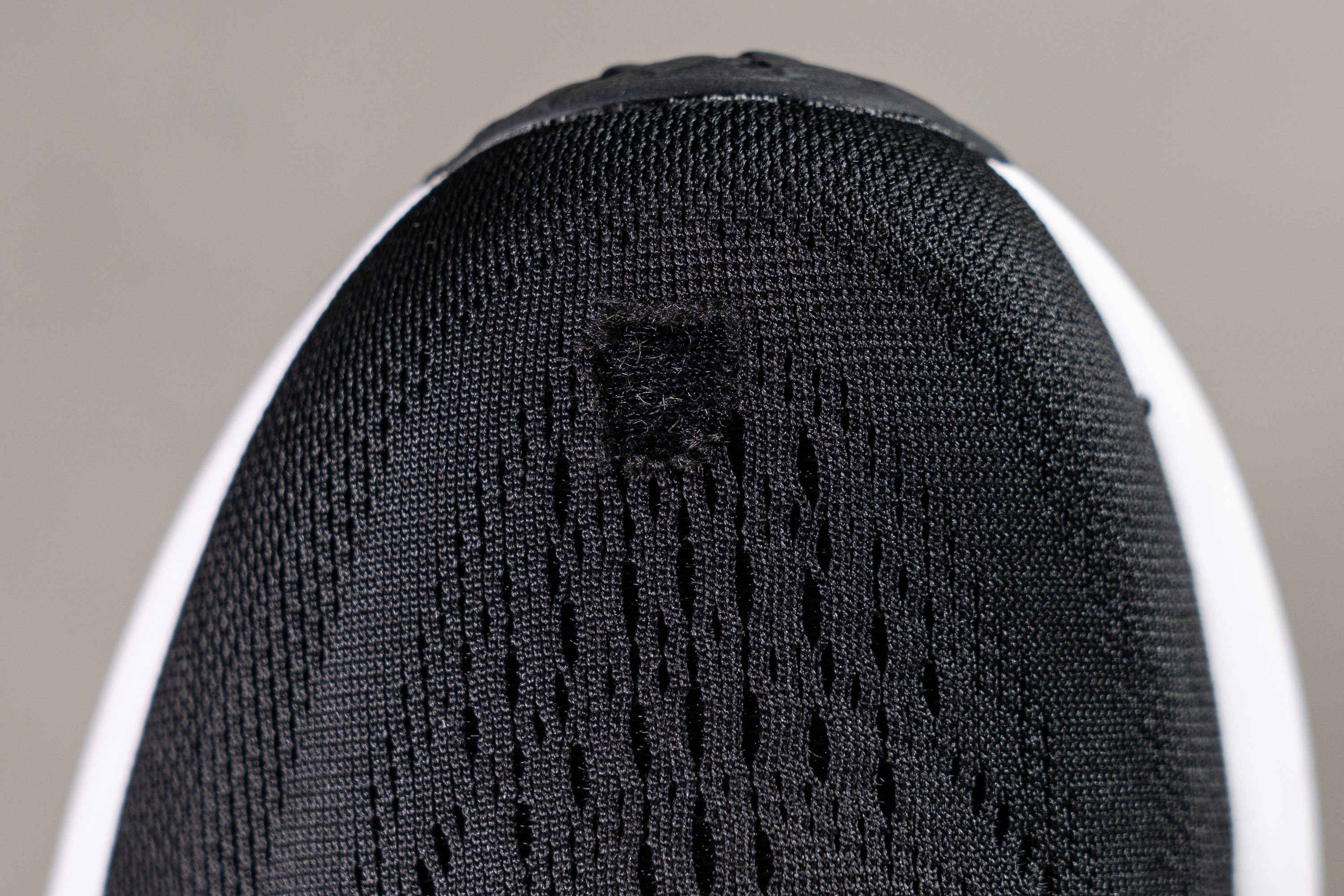
| Gel Pulse 15 | 3 |
| Average | 2.6 |
Heel padding durability
Then, we moved to the heel area, which concerns many runners too.
Here we found another satisfactory outcome, even better than the previous one at 4/5 in our scale. Seems that the Gel Pulse 15 keeps ticking boxes with ease!
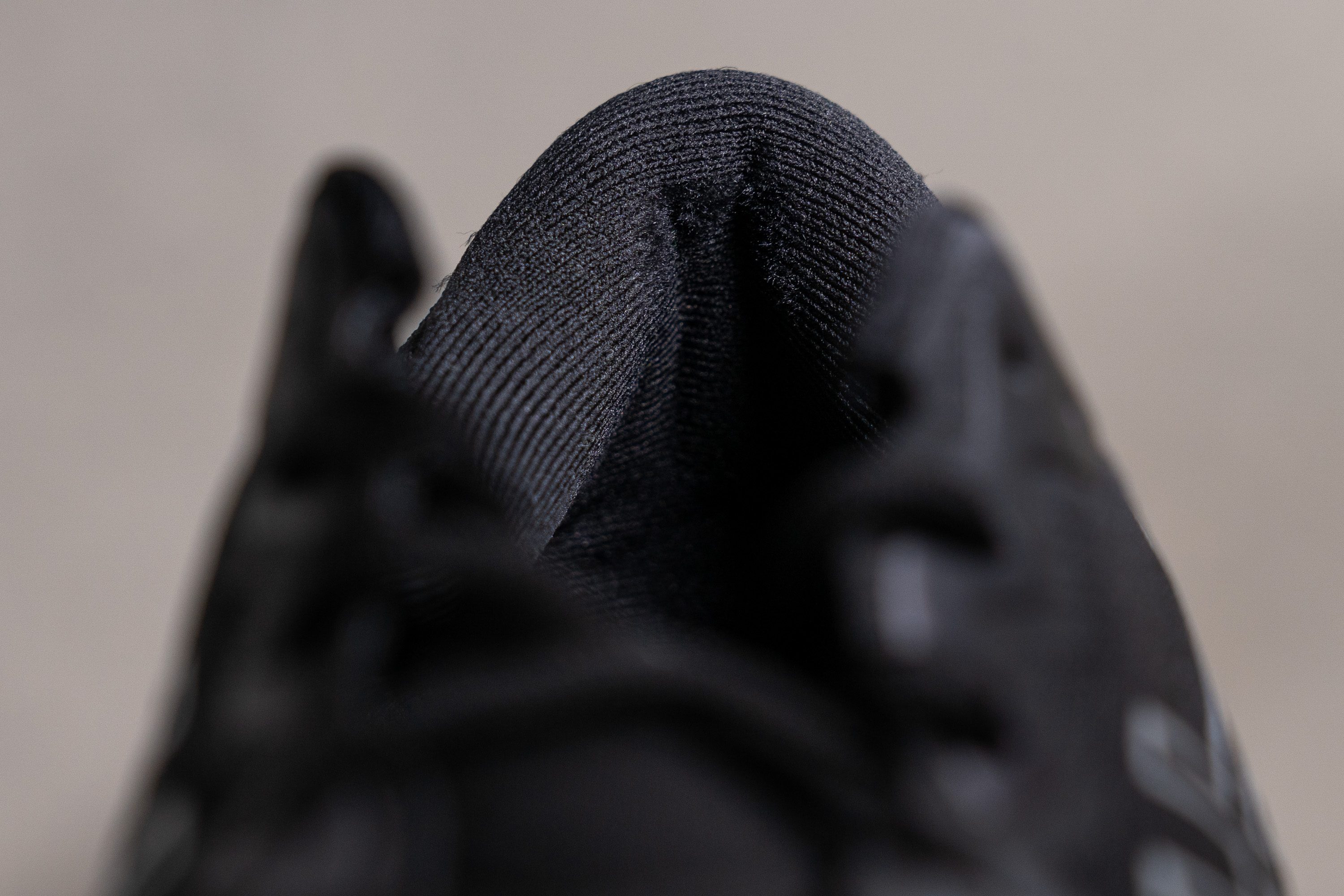
| Gel Pulse 15 | 4 |
| Average | 3.4 |
Outsole hardness
Next: the outsole. For a budget-friendly shoe like this one, it's essential to have a durable outsole—otherwise, it would disappoint, especially since most buyers expect to use it not only for running but also for everything.

In our initial test, we discovered that ASICS used the same AHARPLUS rubber as in the Gel Pulse 14, though this time the rubber is slightly harder at 89.5 HC. While the grip might not be the best in the industry, we expect the durability to be quite reliable in the heel and forefoot.
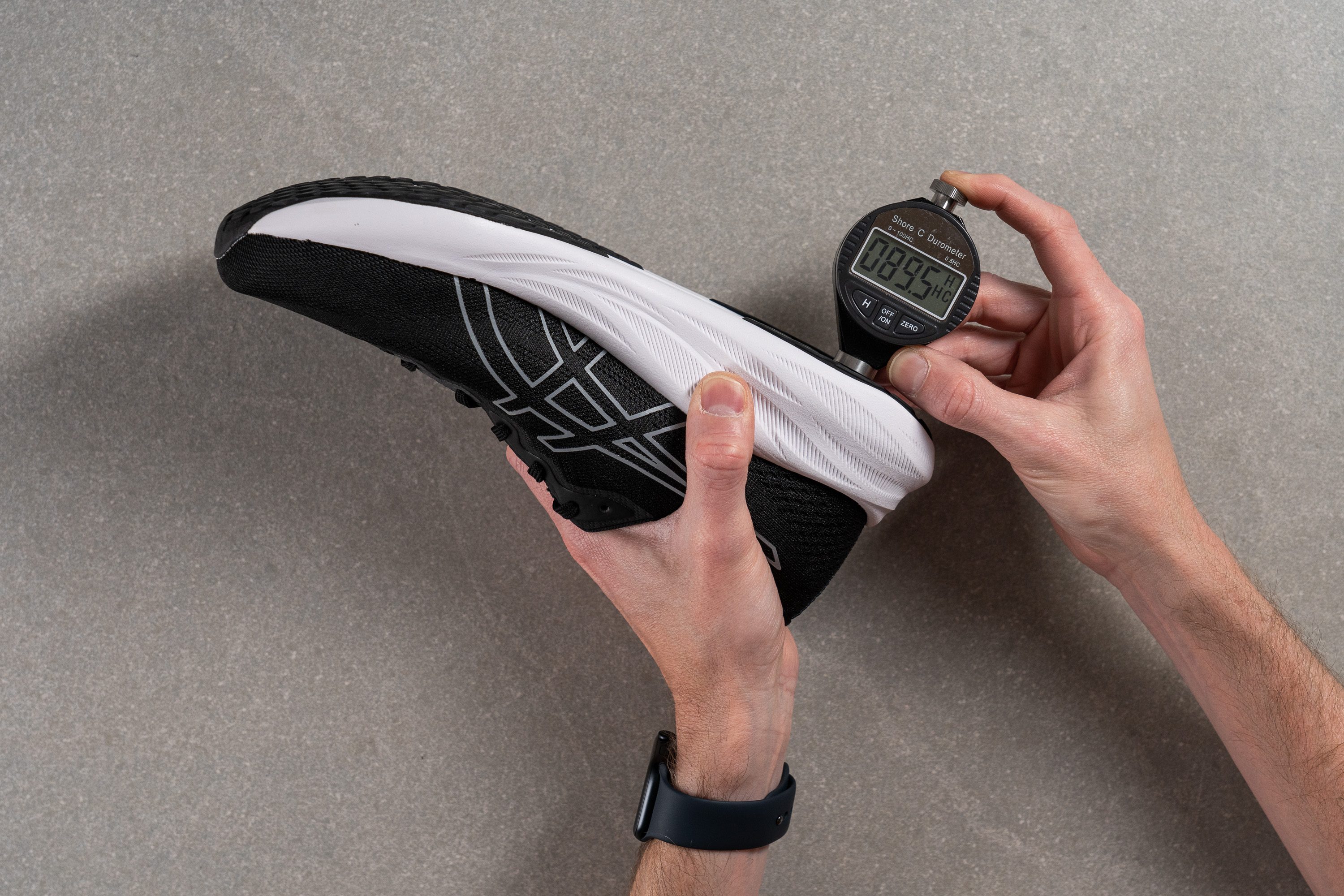
| Gel Pulse 15 | 89.5 HC |
| Average | 79.2 HC |
Outsole durability
To find out, we turned on the Dremel for the third and final time in this lab review, this time at double the speed.
What we discovered left us satisfied, though it's not extraordinary by any means. It's a 0.8 mm dent that suggests good protection for those who tend to wear out outsoles more quickly than average.
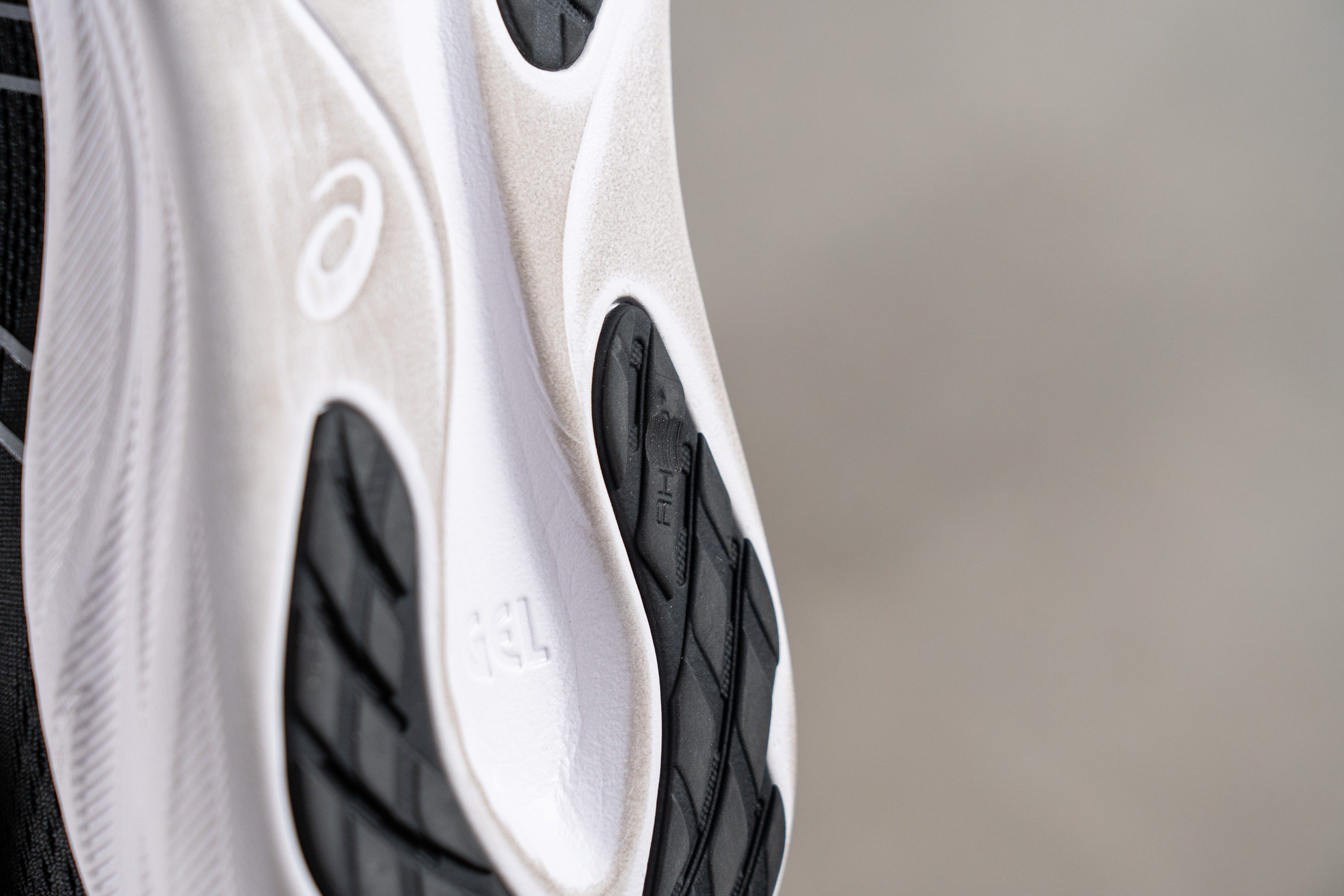
| Gel Pulse 15 | 0.8 mm |
| Average | 1.1 mm |
Outsole thickness
Finally, we measured the thickness of the outsole and found an optimal balance between weight and protection at 3.5 mm.
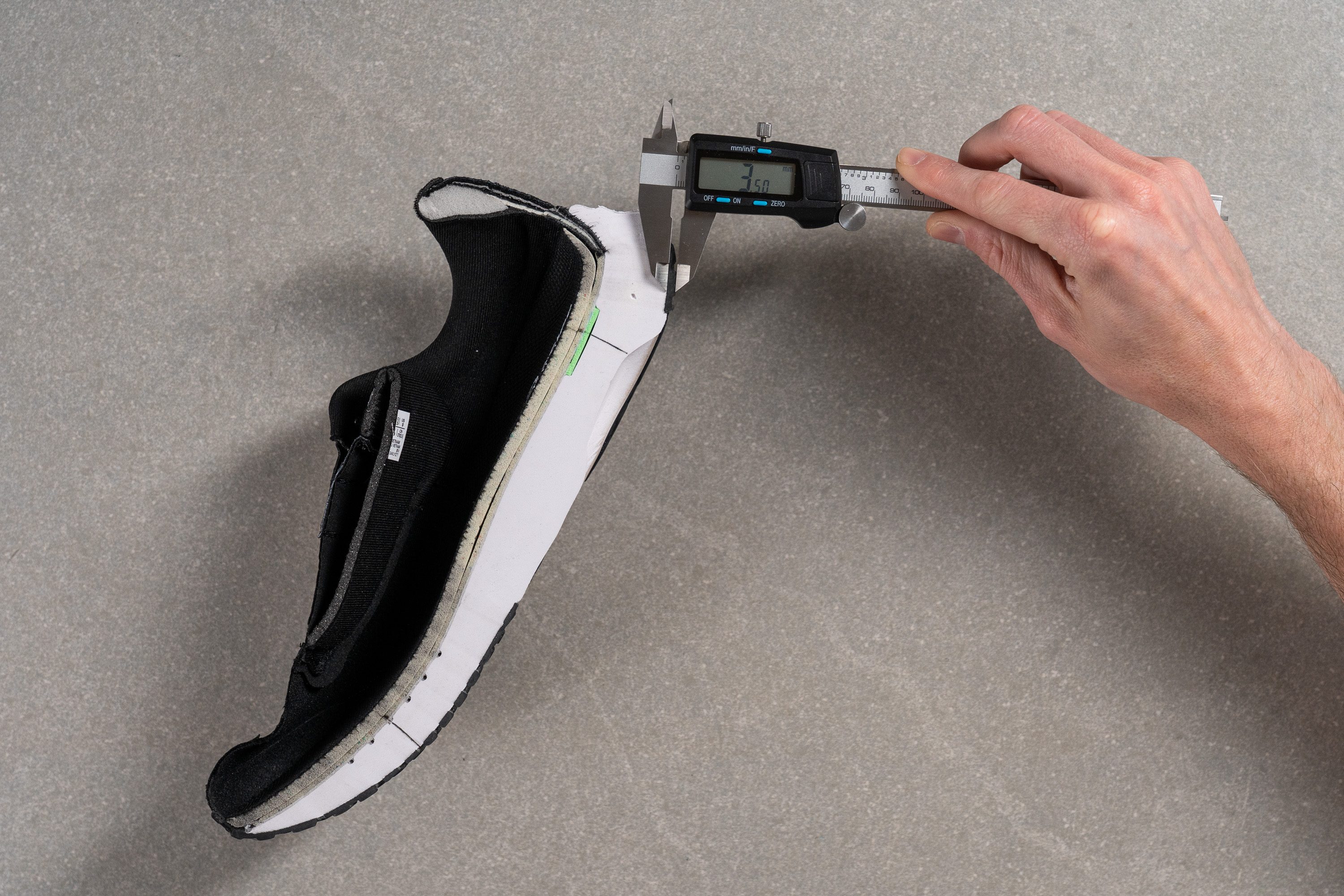
| Gel Pulse 15 | 3.5 mm |
| Average | 3.2 mm |
Misc
Insole thickness
The insole felt notably cushy, and we validated that sensation with precise measurements using our callipers: 5.2 mm, well above average.
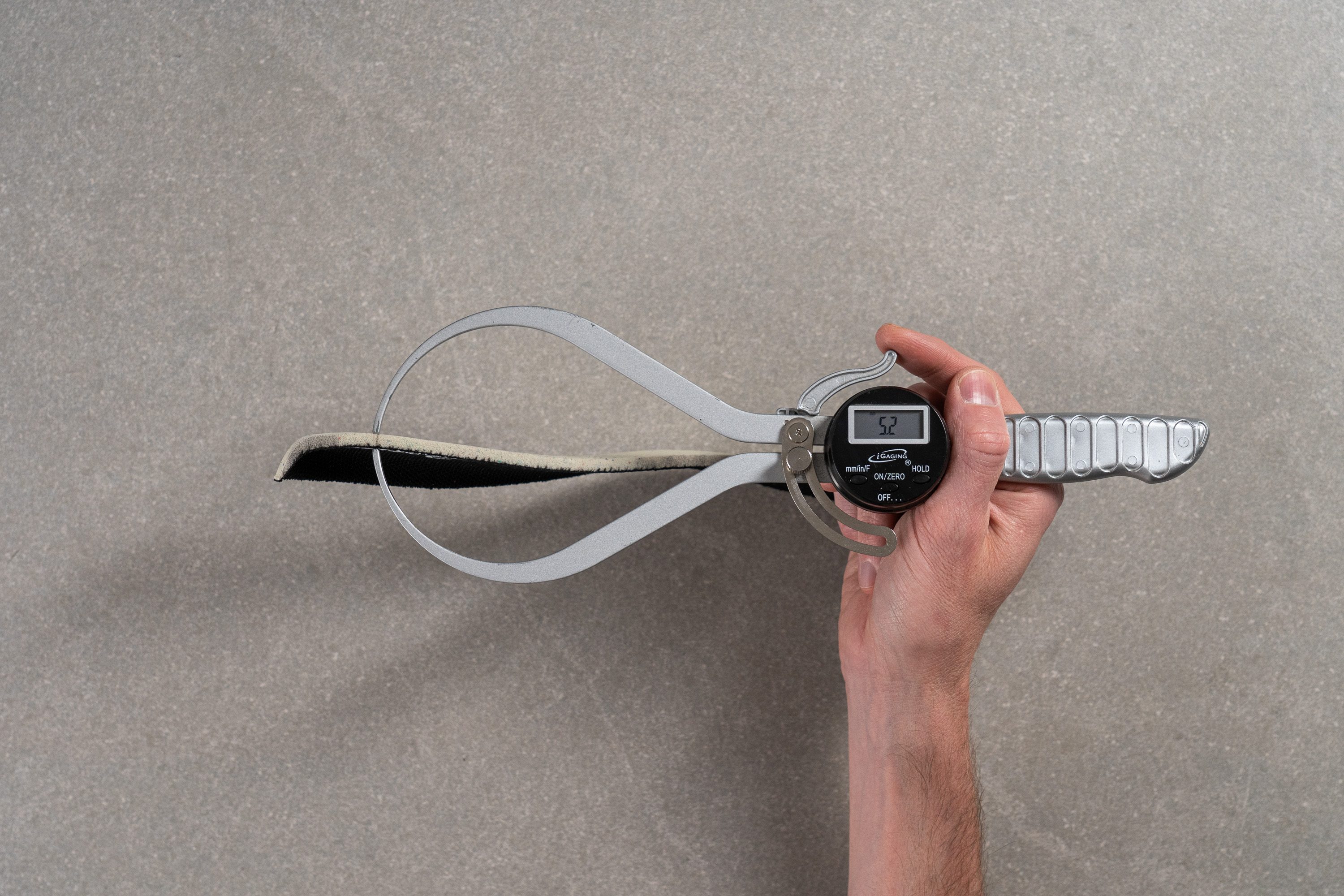
| Gel Pulse 15 | 5.2 mm |
| Average | 4.5 mm |
Removable insole
The Gel Pulse 15 includes a non-glued Ortholite insole, allowing for easy replacements if necessary. However, we've found that this insole surpasses the quality of many others within the same price range.
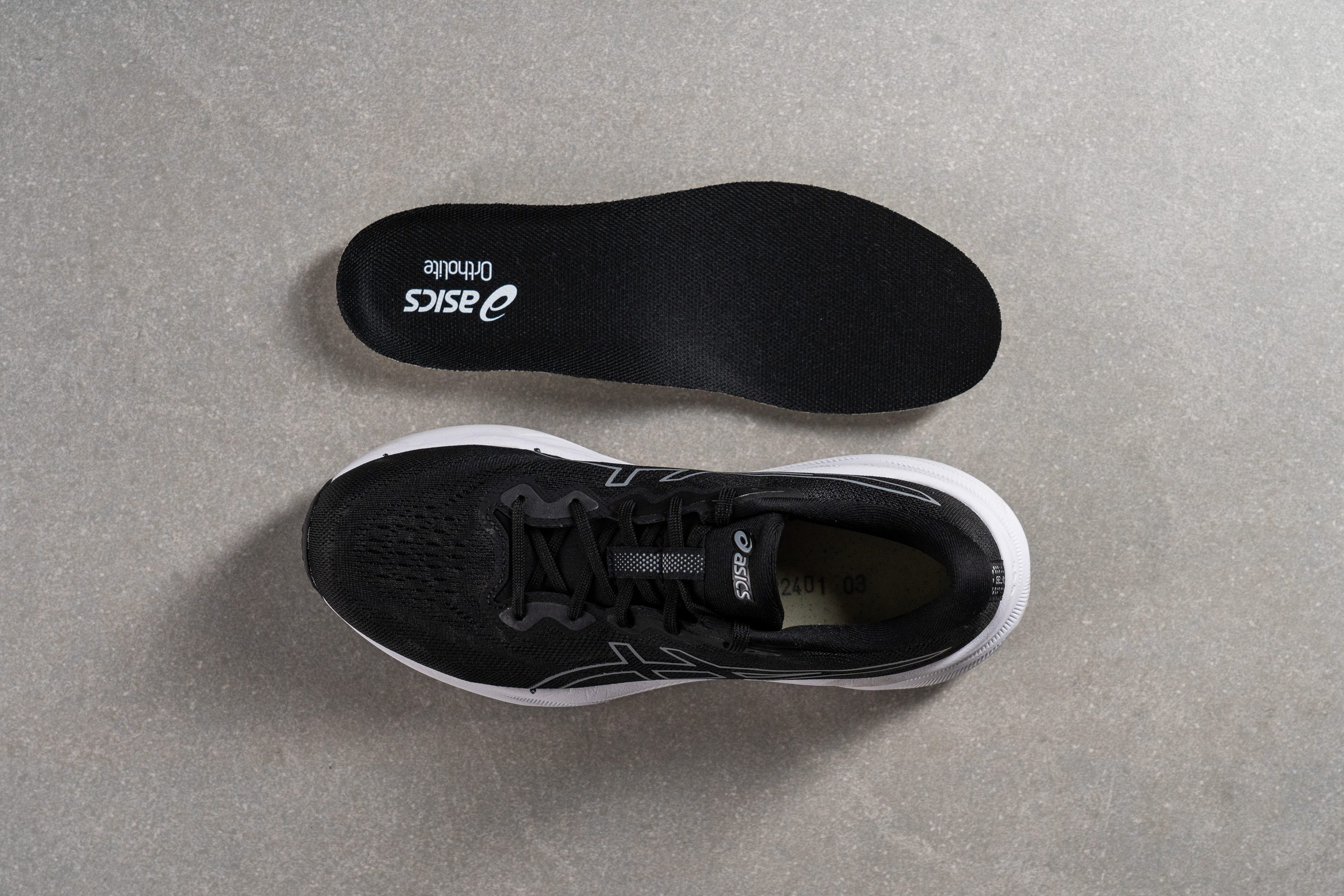
| Gel Pulse 15 | Yes |
Midsole softness in cold (%)
We also wanted to assess how the FlyteFoam midsole responded to cold temperatures, so we placed the Gel Pulse 15 in the freezer for 20 minutes before retesting it with our durometer.
The result? A minor 23.8% increase that left us impressed, as such performance typically correlates with more expensive shoes.
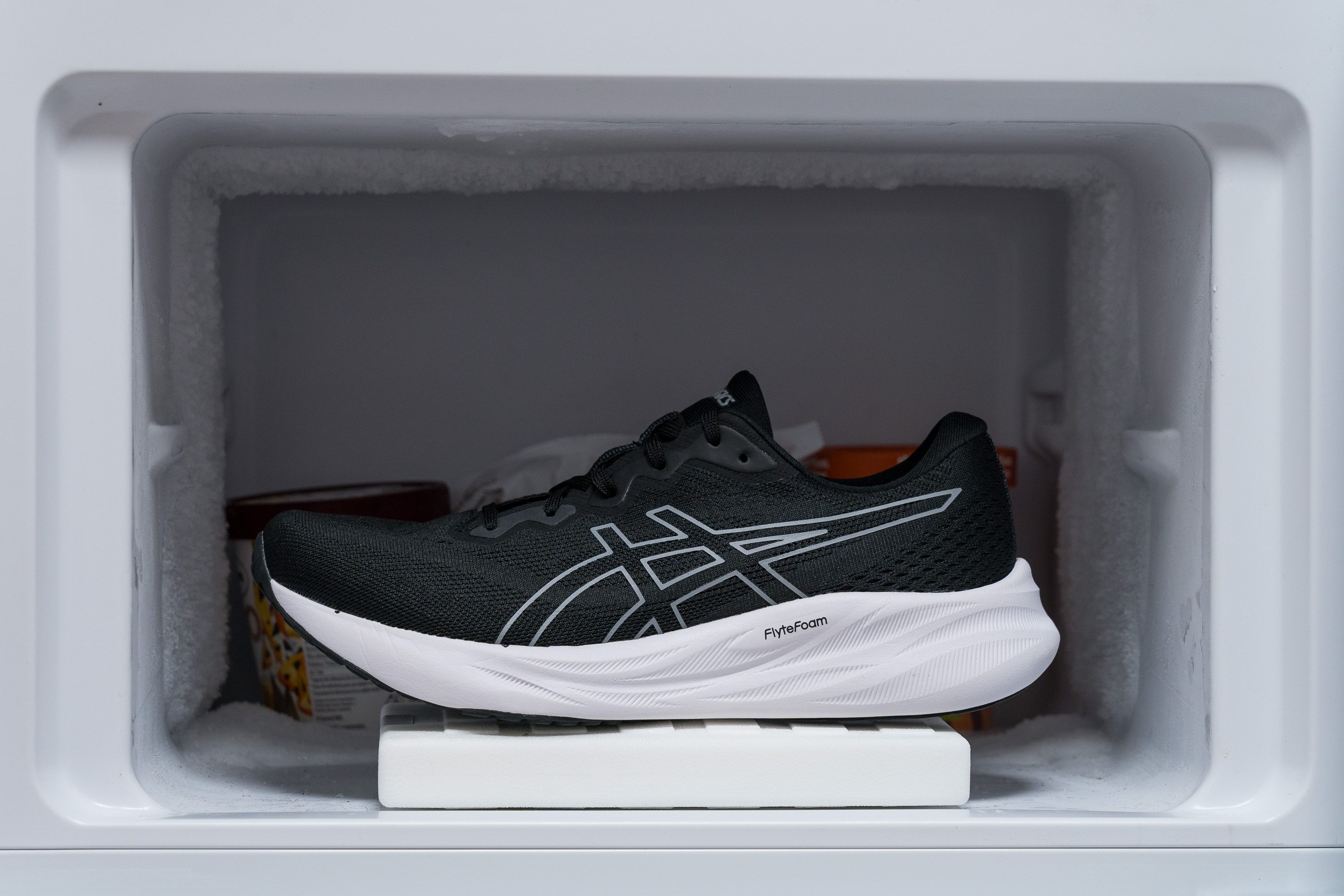
| Gel Pulse 15 | 24% |
| Average | 24% |
Reflective elements
This is a value-oriented shoe—hence, we understand that most premium features are beyond reach. And we found that reflective elements are excluded from these enhancements.
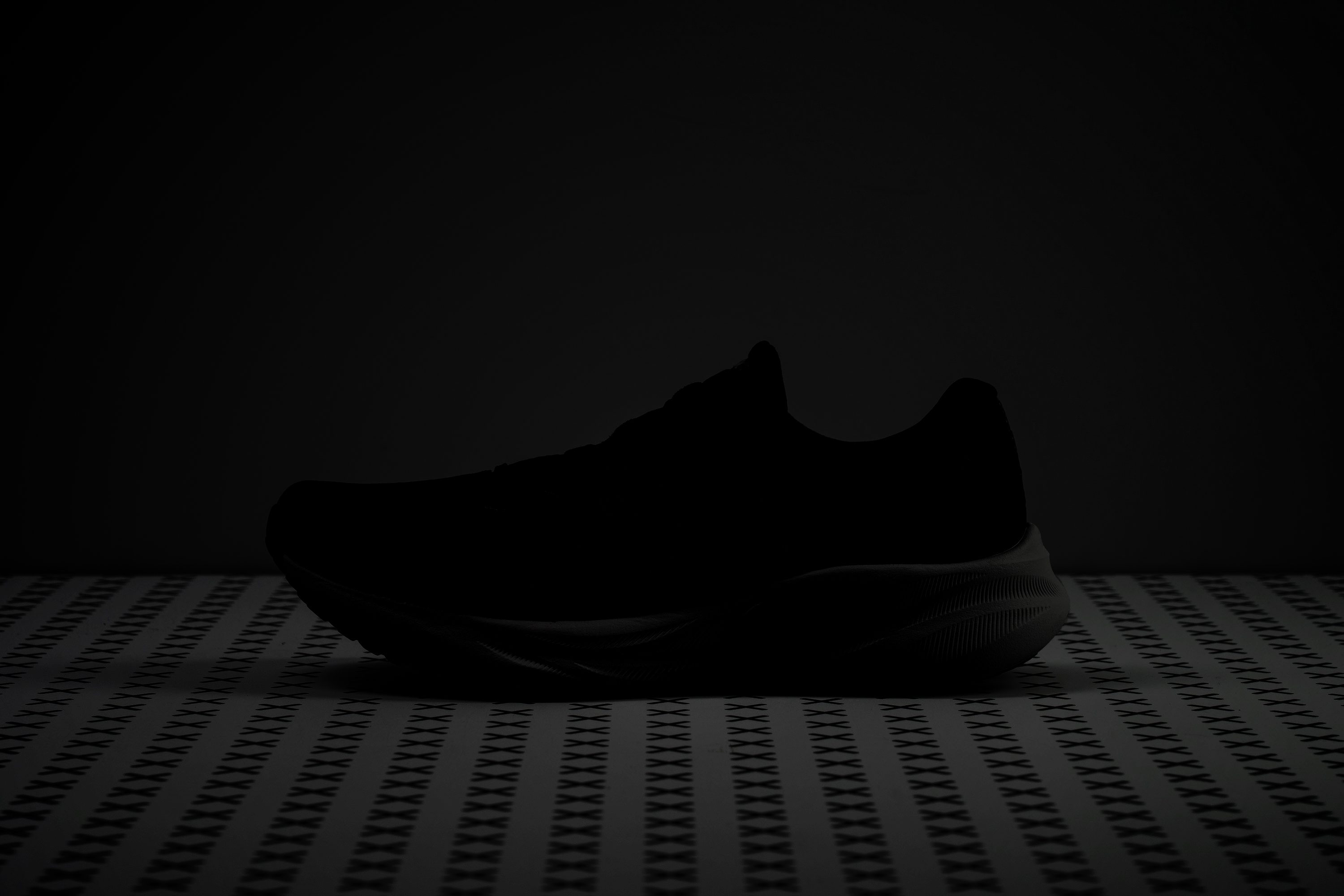
| Gel Pulse 15 | No |
Tongue padding
Do you enjoy tightening your laces firmly but still want to protect your instep? We discovered that the Gel Pulse 15 accommodates this with its substantial 8.9 mm thick padding in the tongue, which includes two slabs of protective foam.
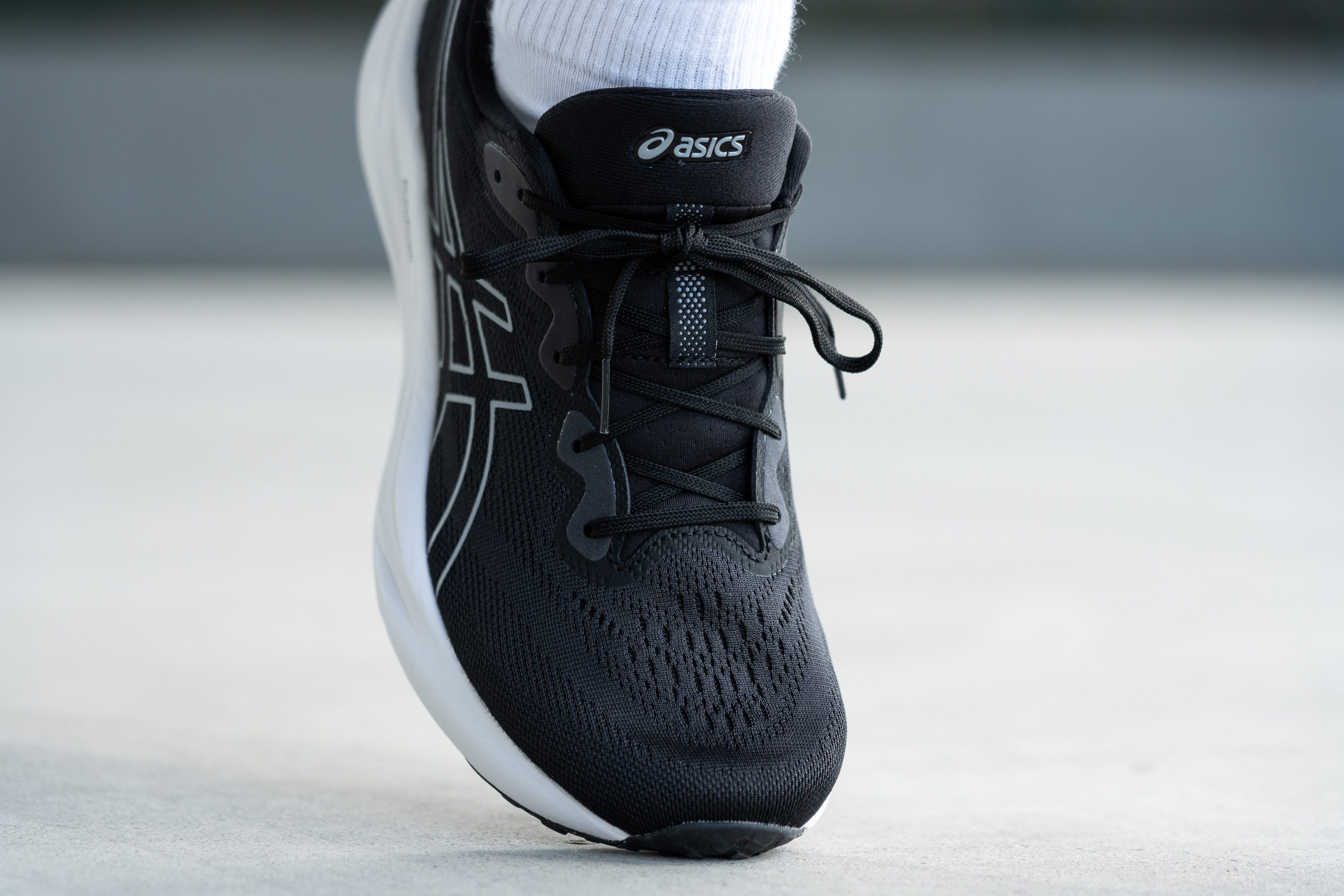
From our evaluation, this shoe provides a level of comfort comparable to what you might find in much more expensive daily trainers.
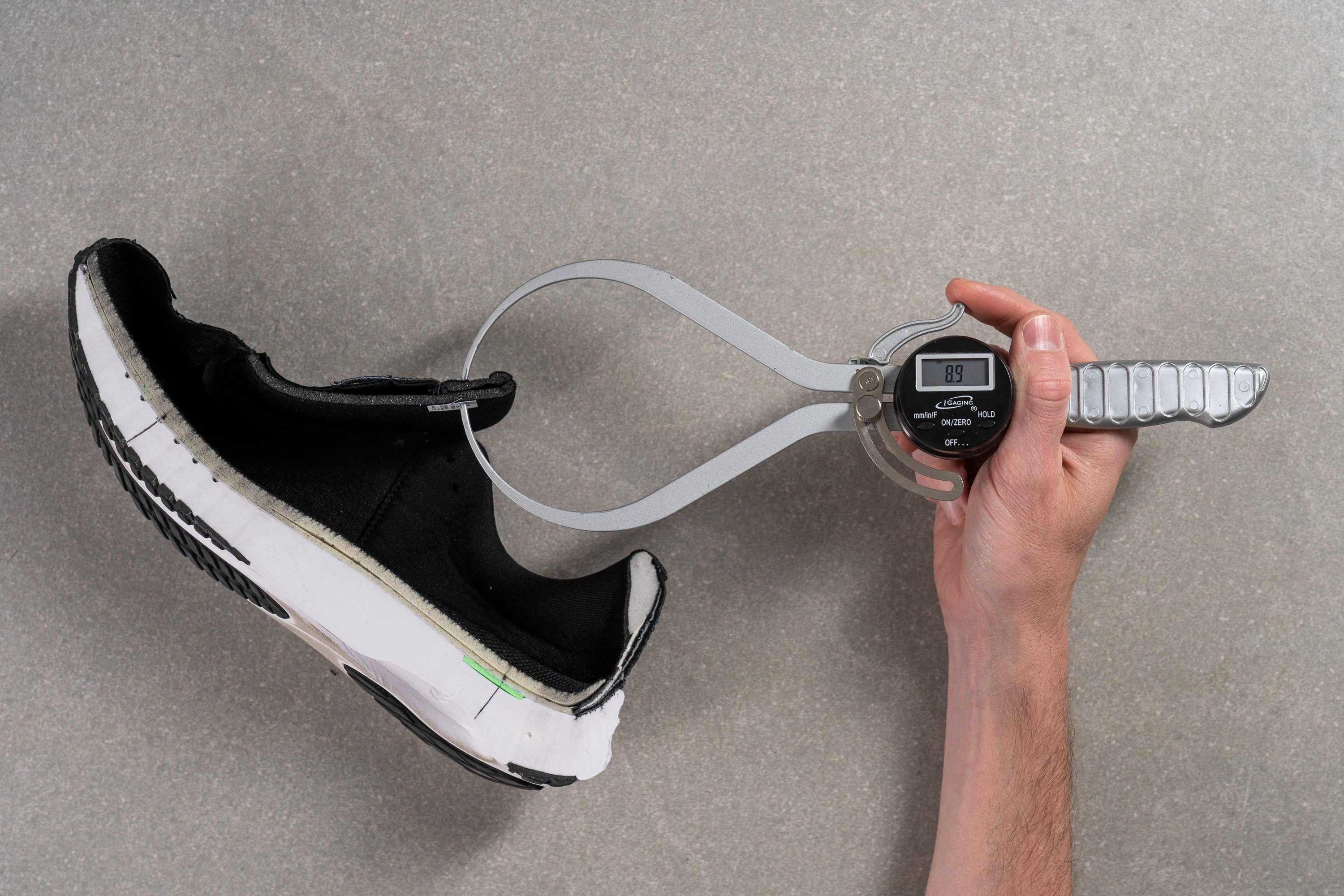
| Gel Pulse 15 | 8.9 mm |
| Average | 5.7 mm |
Tongue: gusset type
The tongue is not attached to the sides, which can lead to unwanted movement, especially at high speeds. However, at this price point, expecting such a feature might have been overly optimistic from us.
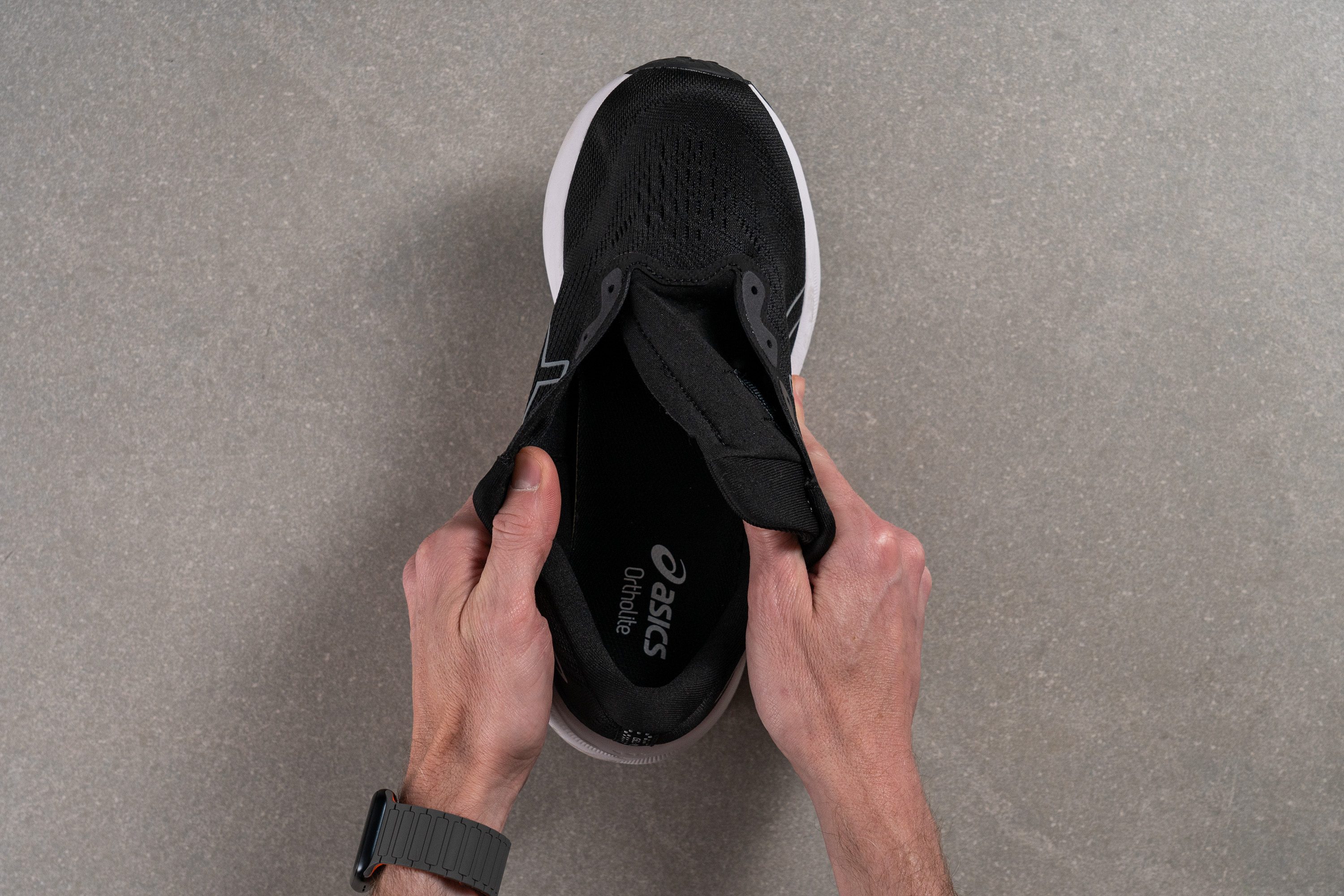
| Gel Pulse 15 | None |
Heel tab
The Gel Pulse 15, lacking a heel tab, adopts a straightforward design approach without any visually-striking features.
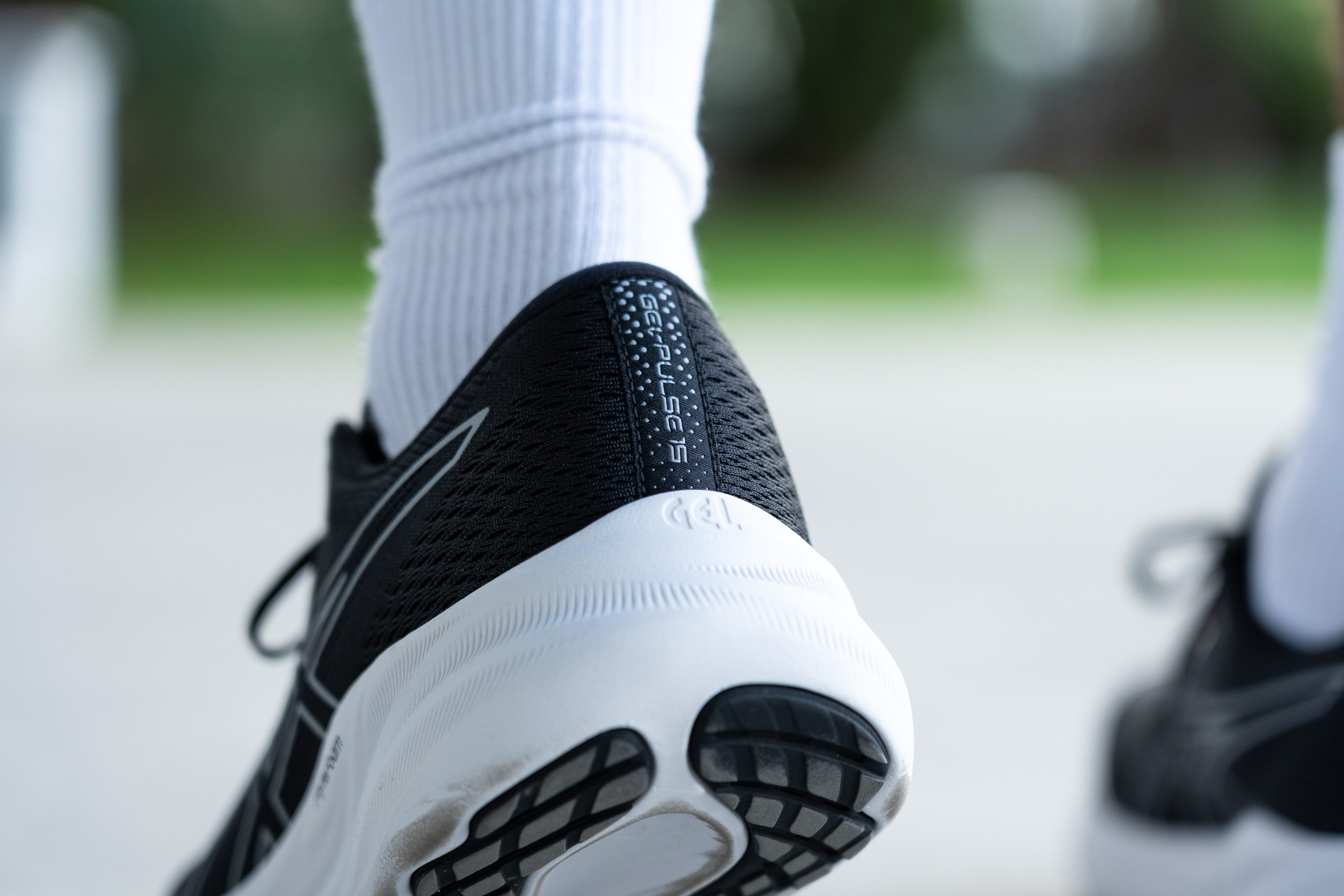
| Gel Pulse 15 | None |

